Submitted by WA Contents
y.ad studio converts former hospital and old factory dormitories into homestay hotel in China
China Architecture News - Nov 25, 2022 - 14:18 2364 views
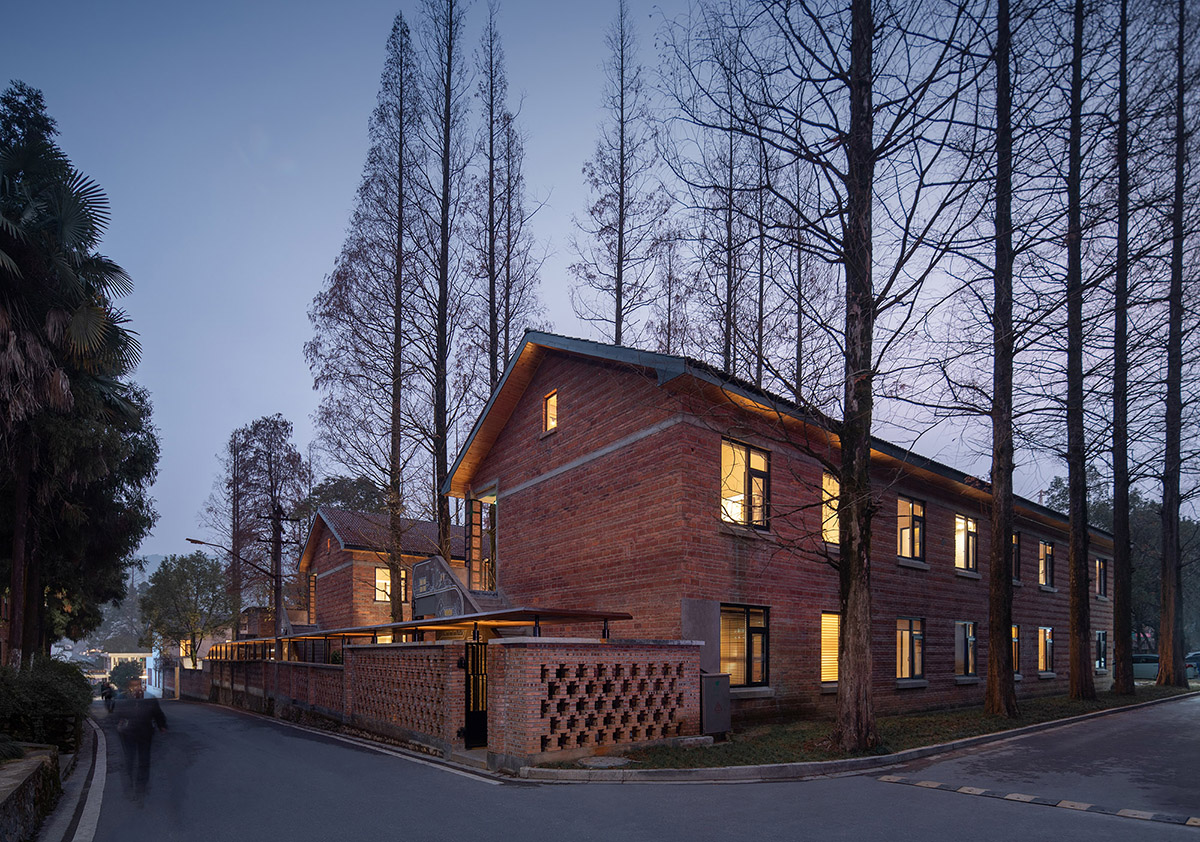
Shanghai-based architecture practice y.ad studio has converted a former architectural complex consisting of a former hospital and several old factory dormitories into a homestay hotel, offering bed and breakfast.
Named Pushe - Xikou Homestay, the 2,336-square-metre project is located in the Rural Future Community in Xikou Town, Zhejiang Province, China.
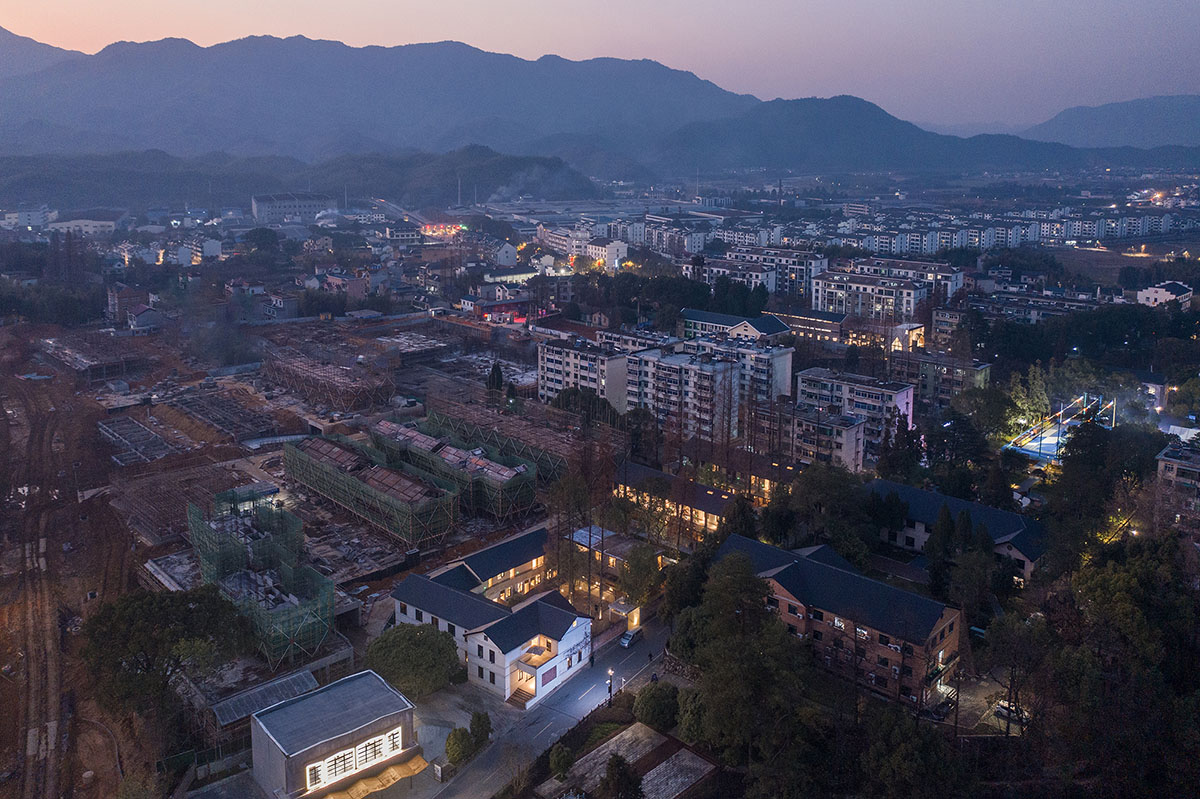
Aerial view
After a careful site investigation and analysis, y.ad studio conceived the design by centering on three questions: How to infuse new design into the existing complex while reserving the site's memory?, How to connect separate buildings to facilitate the daily operation of the Bed and Breakfast? and How to make use of the existing courtyards with dawn redwoods?.
y.ad studio's latest project Jijiadun Village Conference Center, Kunshan in China won the WA Awards in the 41st Cycle, which was named among the 10 Best Architecture/Realised projects.
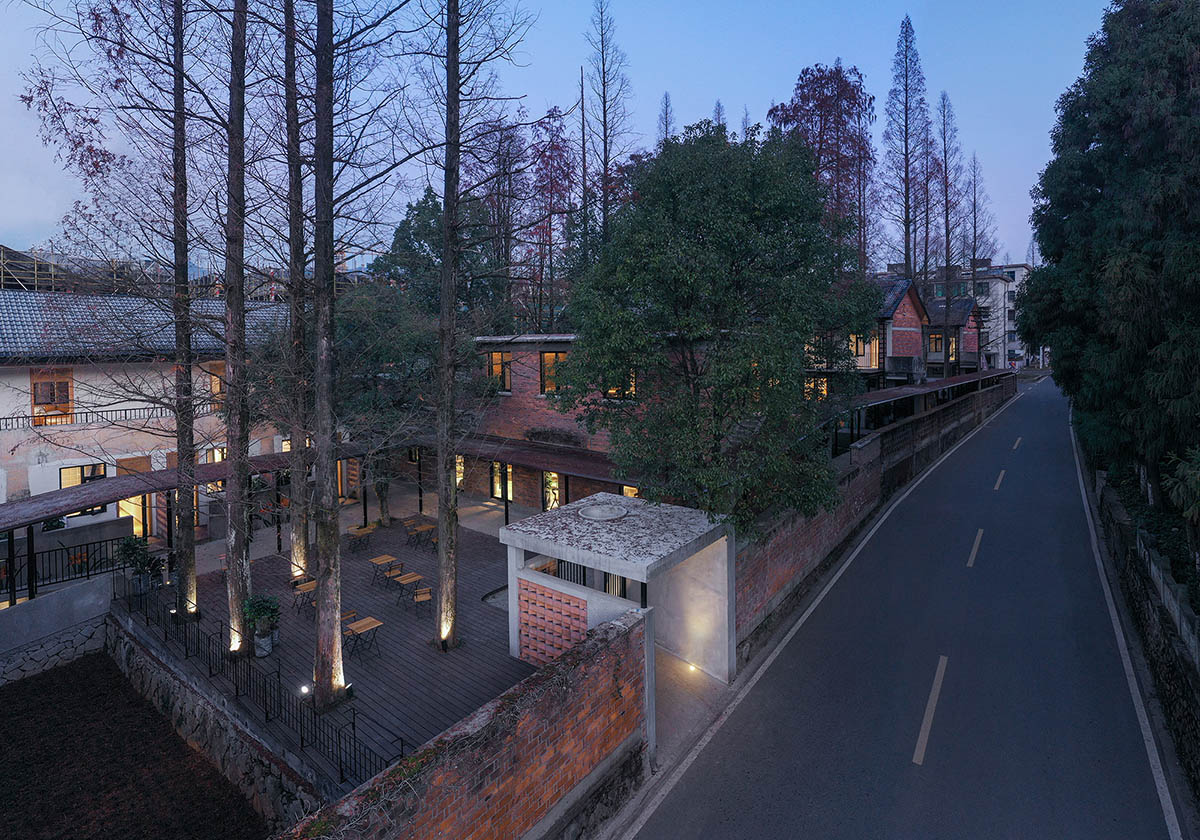
Semi-aerial view
The office answers the first question of "how to infuse new design into the existing complex while reserving the site's memory?" in terms of contextual parameters. Read the full design narrative with architects' own words.
The walls, roofs and courtyards of the existing architectural complex were in shabby condition due to years of neglect. Nevertheless, the buildings still carry the historical traces of the 1960s and 1970s. When renovation started, the design team adopted a strategy that respected the historical background and cultural context of the complex, to improve its condition through micro transformation and minimum intervention. With a respect for its original texture, the architects managed to reserve the memory of the original space.
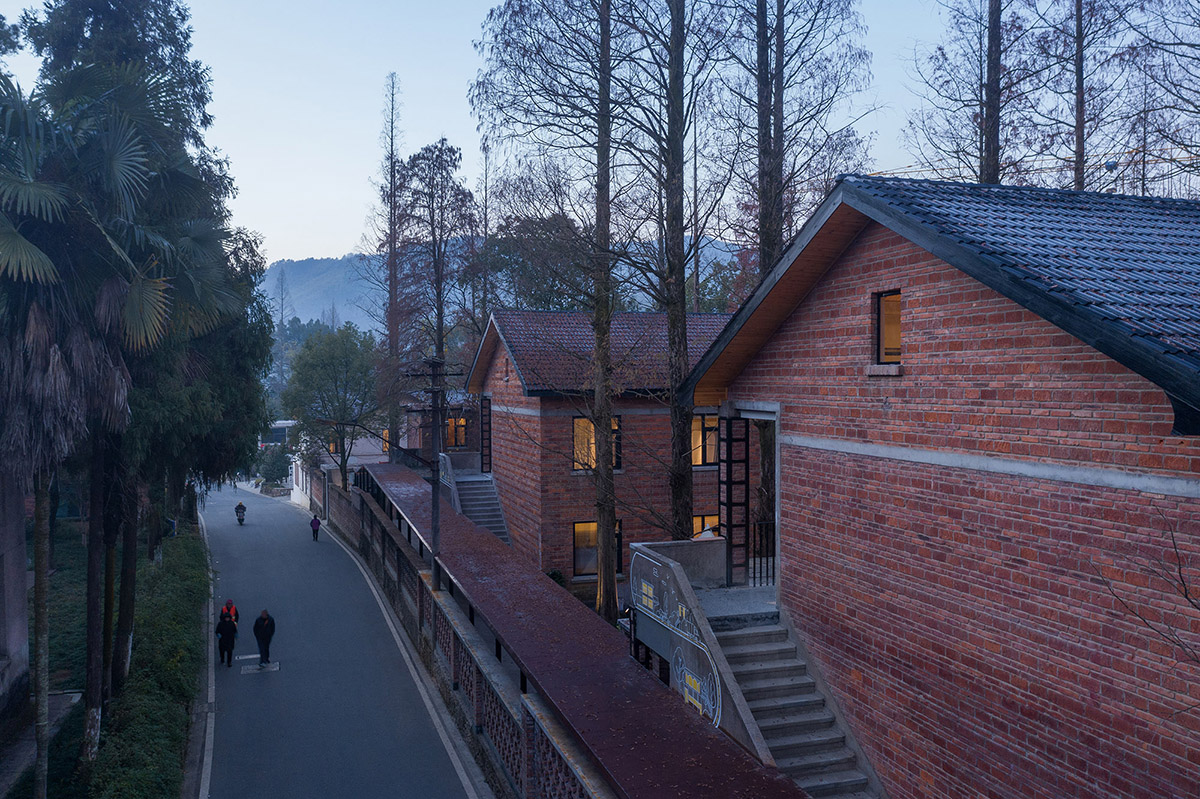
Semi-aerial view
Through design and operation, the deserted old buildings are injected with new vitality. The complex is transformed into a venue that embodies the memory of the past and is suitable for people to live and use in modern time.
The architects focused more on the improvement of the interior environment. The facades were refurbished, restored and consolidated, designed in a restrained way to blend with the original buildings. While preserving the original architectural form and style, the design team updated the functions of the indoor spaces, to meet requirements for the operation of a B&B and comply with modern lifestyles and the habits of space using. To strengthen a sense of nostalgia, the interior spaces are decorated with elements and materials of the mining industry, which remind visitors of the site's memory in a certain historical period.
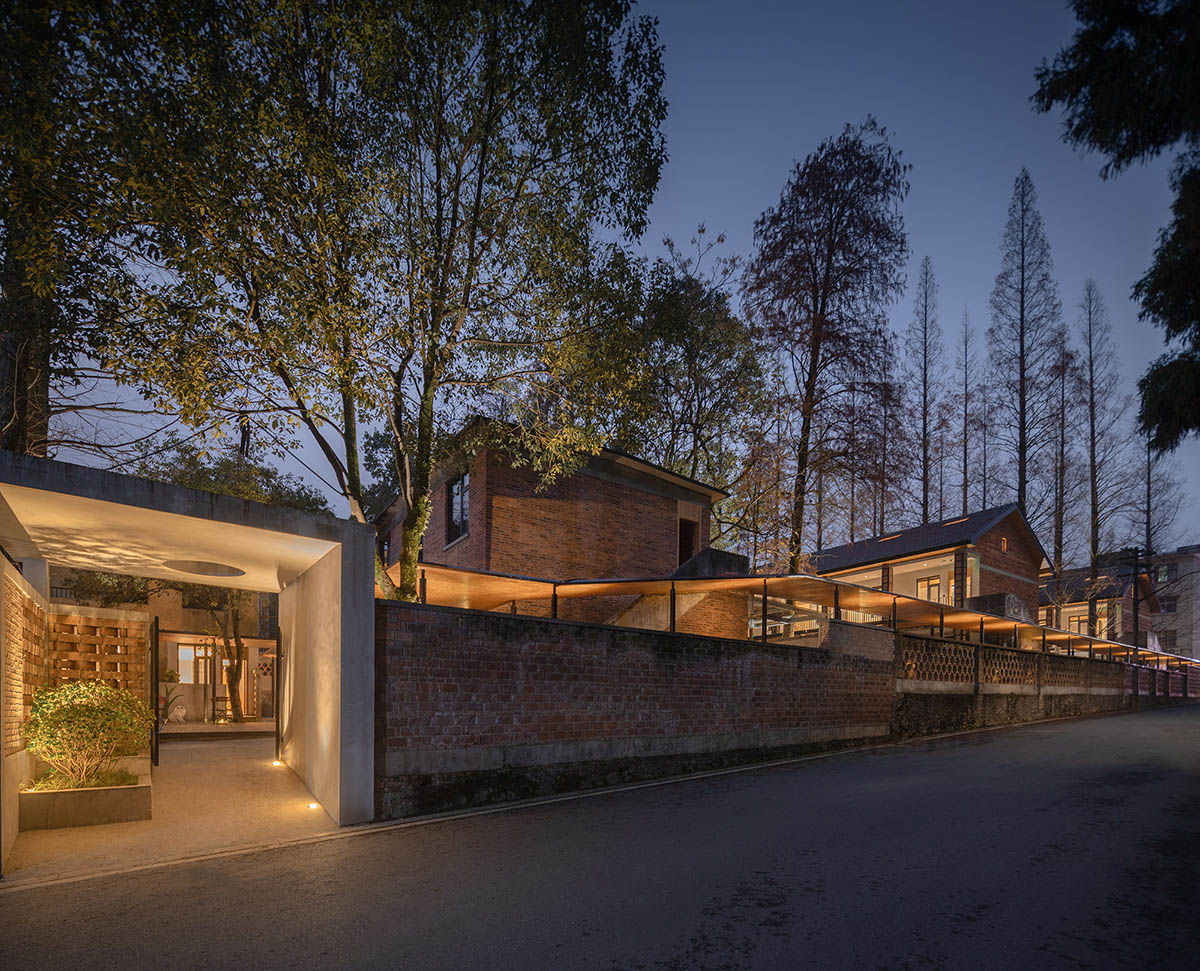
Courtyard entrance after renovation
The second question, titled How to connect separate buildings to facilitate the daily operation of the B&B?, unpacks the importance of new functions coherent with the existing typology.
As the space was set to function as a B&B, the original layout of the complex was too scattered and segmented to form a whole.
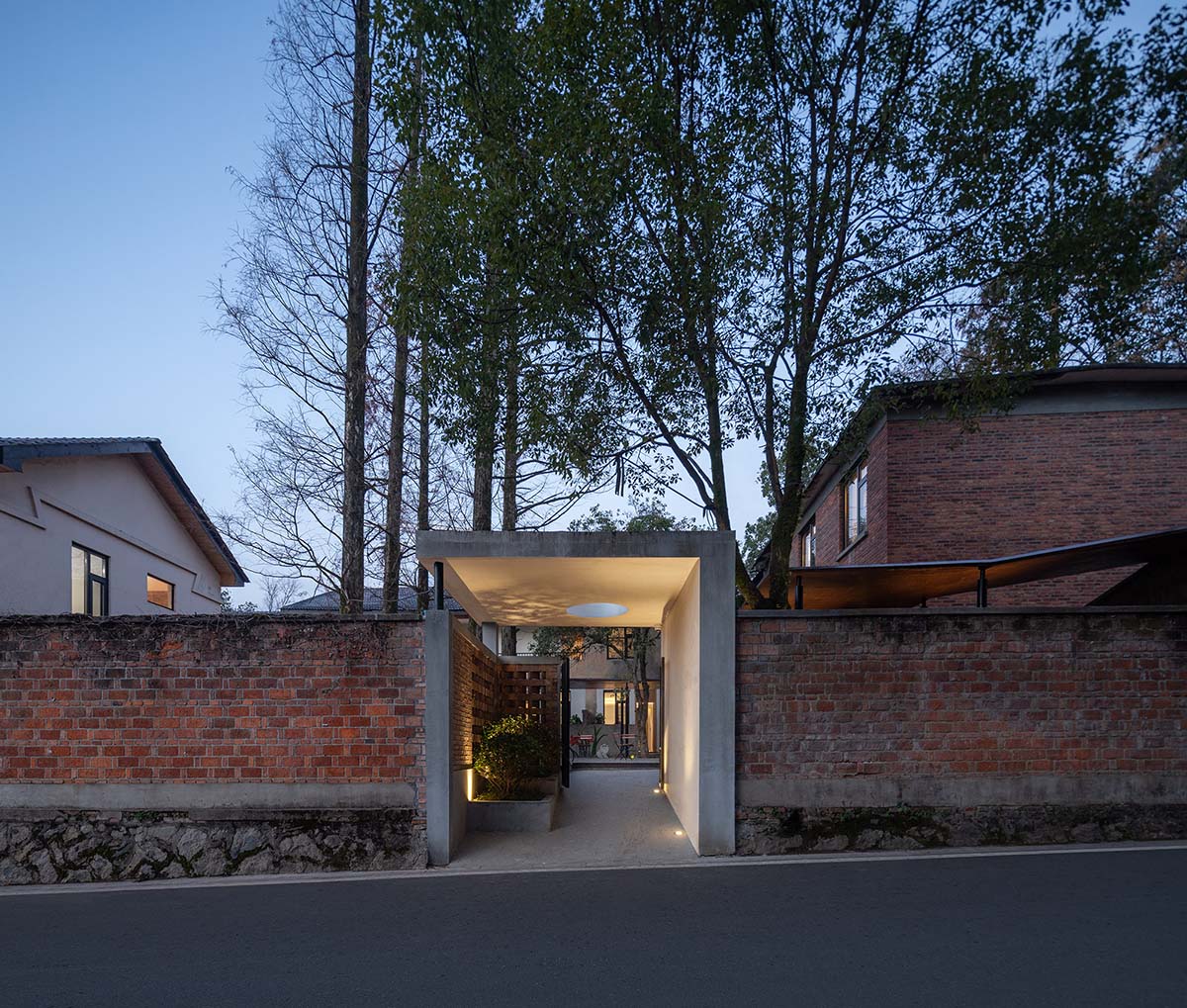
Courtyard entrance after renovation
Therefore, the architects redistributed the spatial functions. The first floor of No.1 Building is used as a public area and a bar, while the second floor is used for guestrooms. Meanwhile, the first floor of No.3 Building is transformed into a restaurant, and the second floor is used as a venue for team building activities and meetings. Other buildings of the complex are used as guestrooms.
To ensure the independence and privacy of the B&B, the architects repaired the broken walls to enclose the complex. A covered corridor was also added to link the buildings. These measures not only reshape the circulation route and the hierarchy of the space, but also bring more unity to the site.
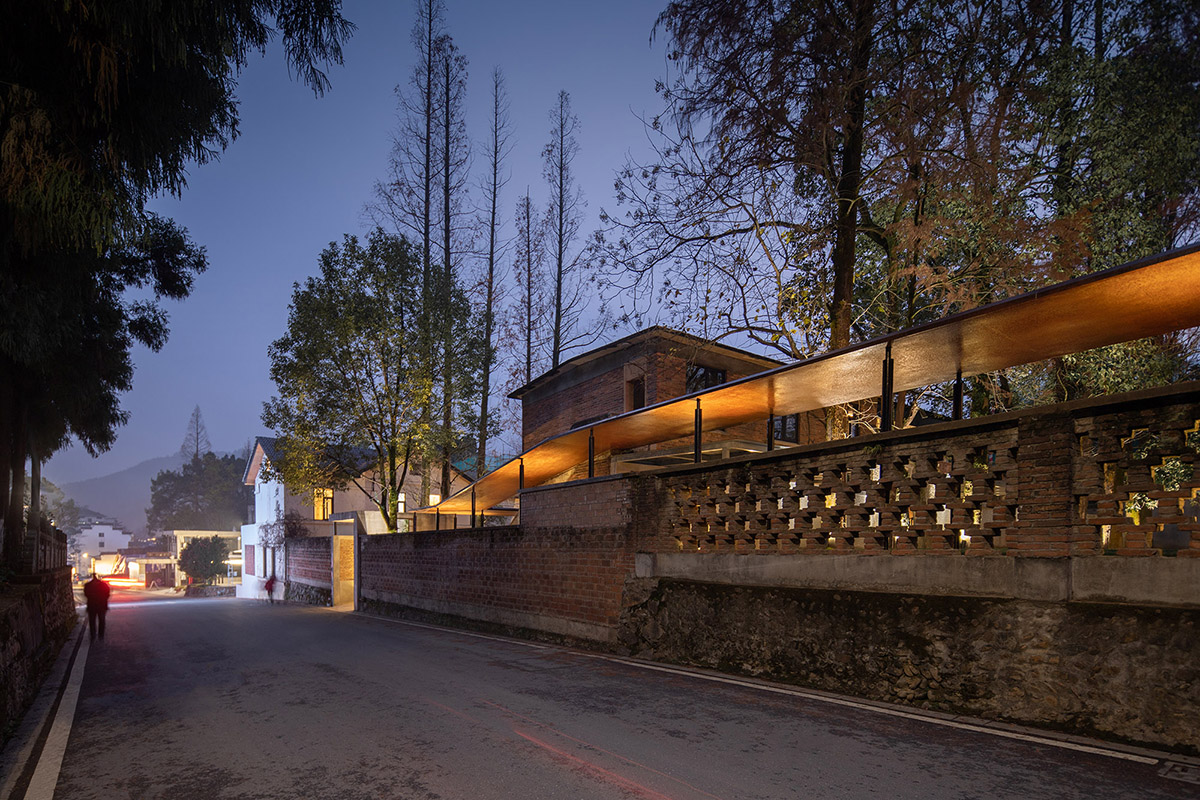
Enclosure wall and pergola after renovation
The corridor is intended to provide a shelter from the weather, and to create a circulation route that leads visitors to move between different functional spaces and courtyards. With twists and turns that create different viewing angles, the circulation route brings varying visual and sensory experiences.
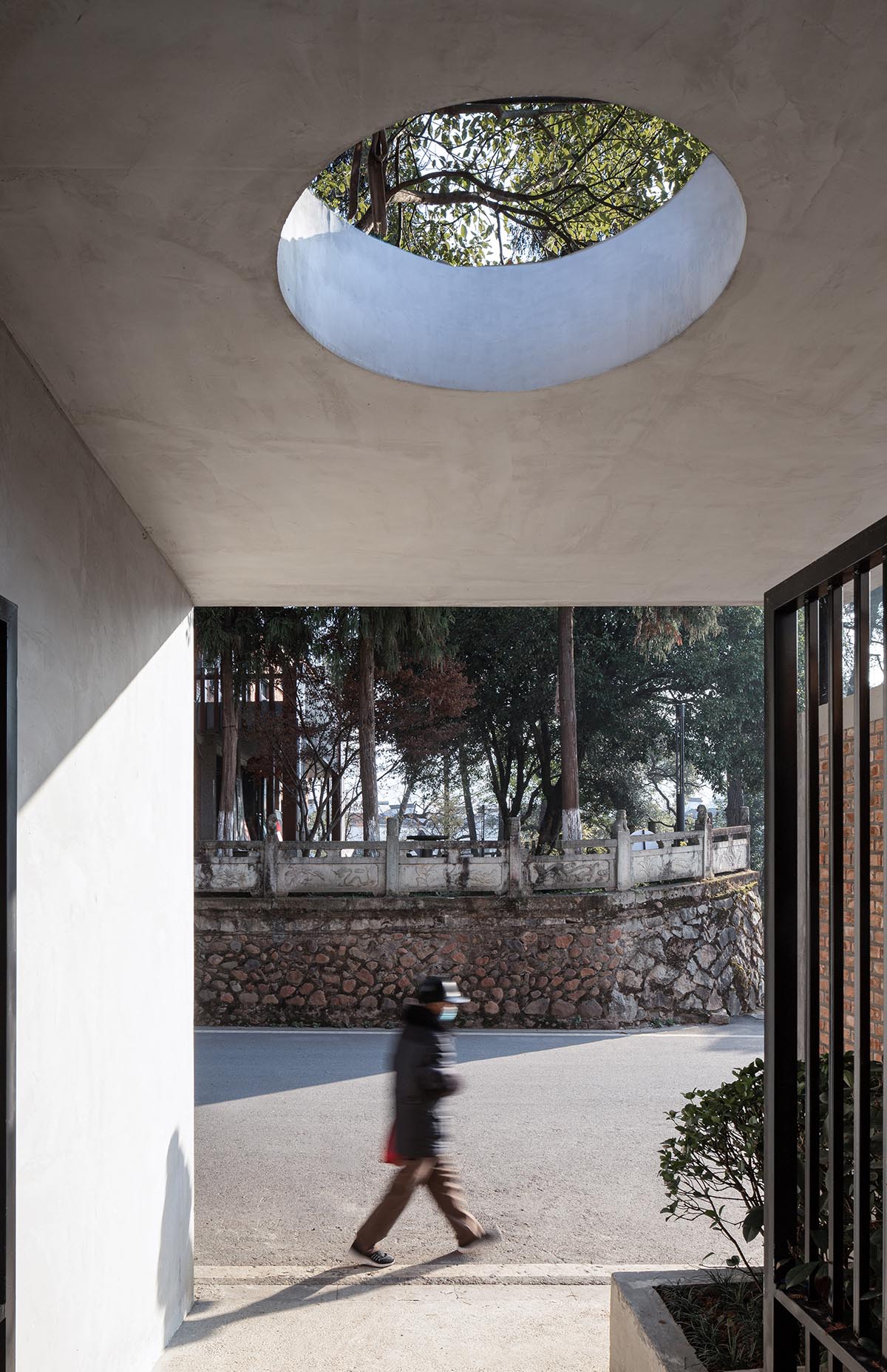
Courtyard entrance after renovation
The final question, How to make use of the existing courtyards with dawn redwoods?, explains the design of interior spaces and courtyards.
Dawn redwoods have grown for years in the existing courtyards in between buildings, giving the site a special, graceful quality. However, the original courtyard spaces, which were medium-sized, were not utilized properly. After the originally compartmentalized dormitories were transformed into guestrooms, the space was still quite limited.

Corridor on 2F
After analysis, the design team decided to redesign and transform the interior structures of the guestrooms and relocate the courtyards. The No. 1 courtyard is used as an extension of the restaurant, and a public courtyard for leisure and dining purposes.
The No. 2 and No. 3 courtyards are divided into large courtyards for public activities and small courtyards for guestrooms, so as to maximize the value of the spaces for public and private use while better integrating the dawn redwoods with the courtyards.
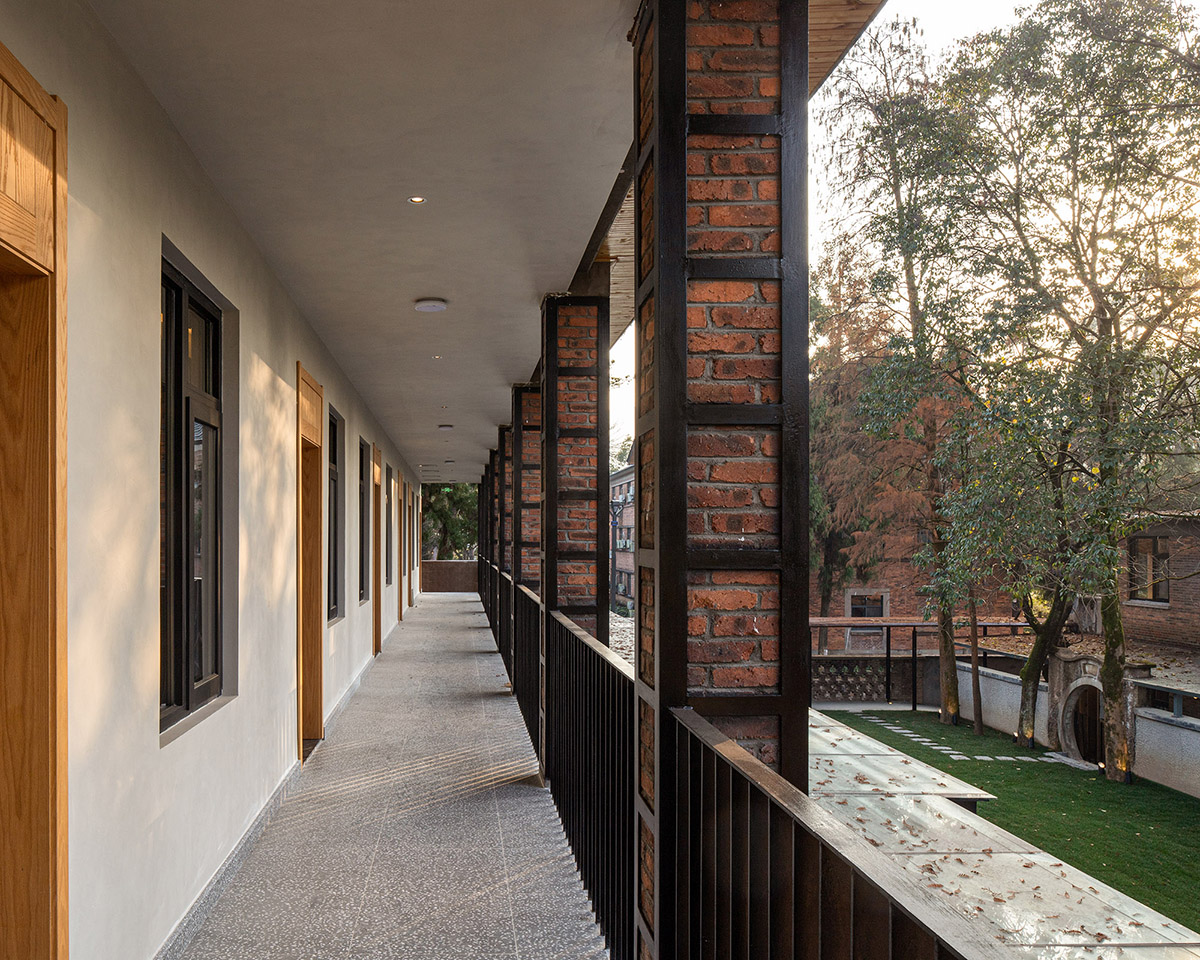
Corridor on 2F
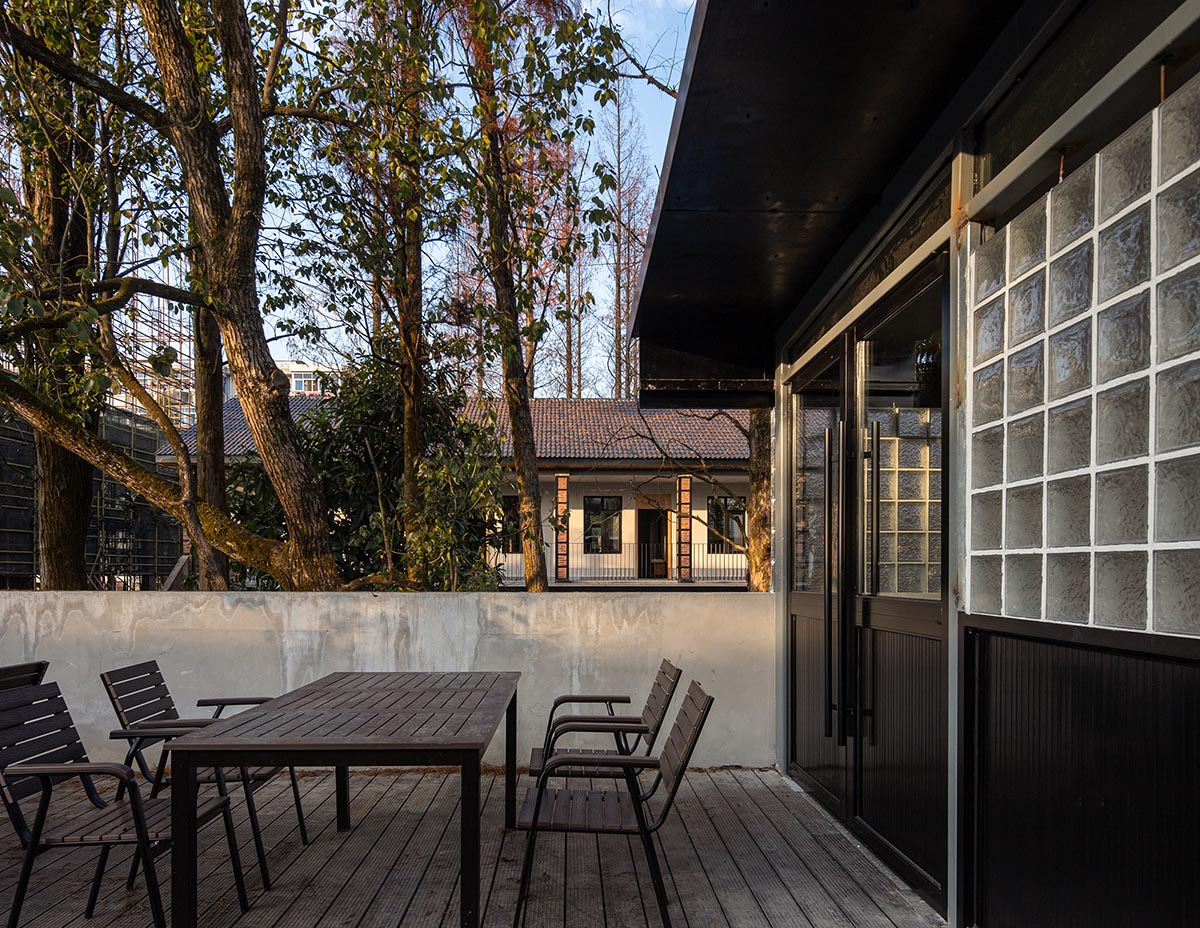
Terrace & leisure area
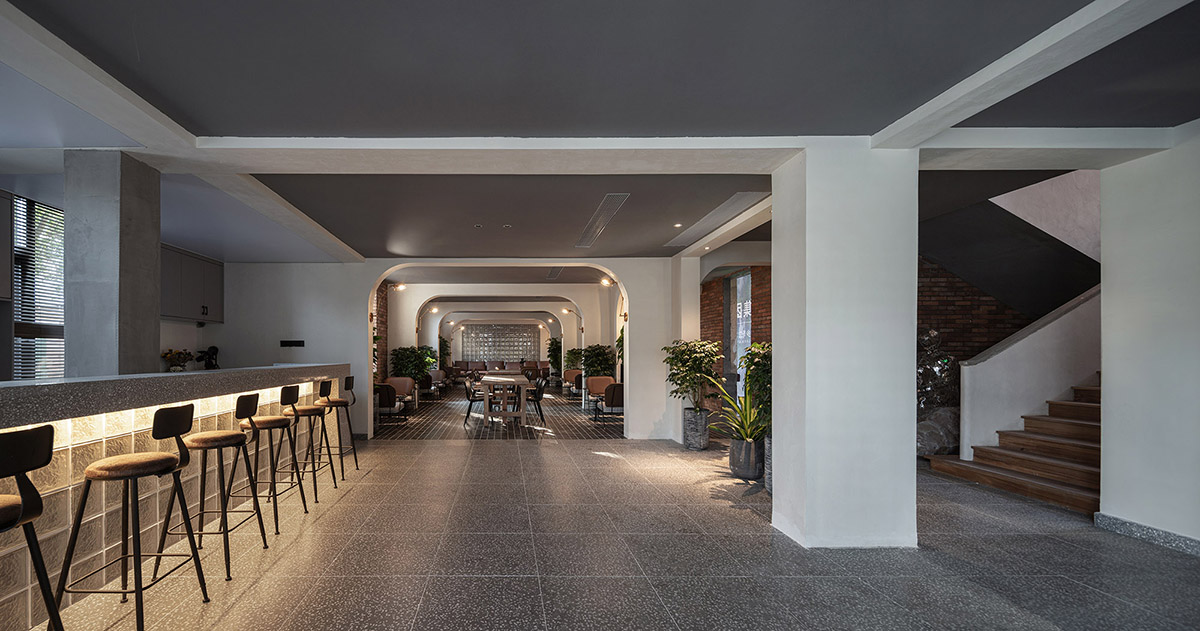
Lobby and bar
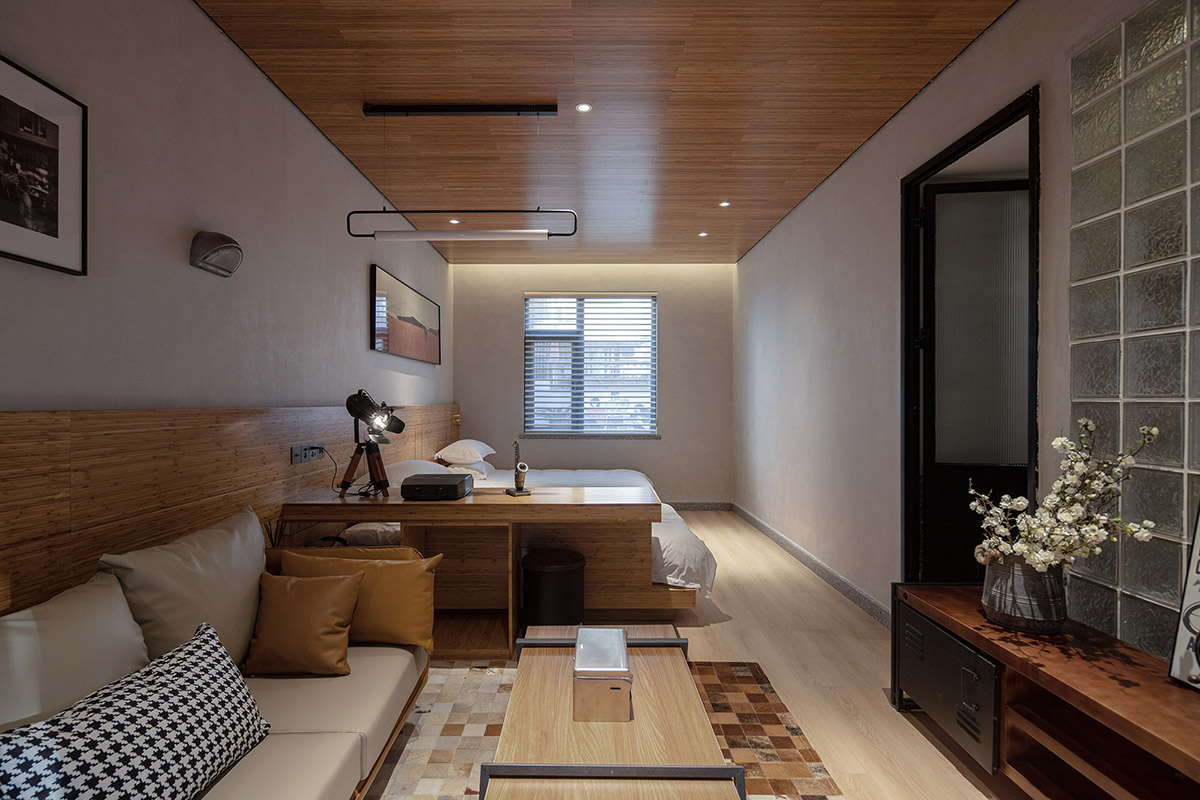
Guestroom
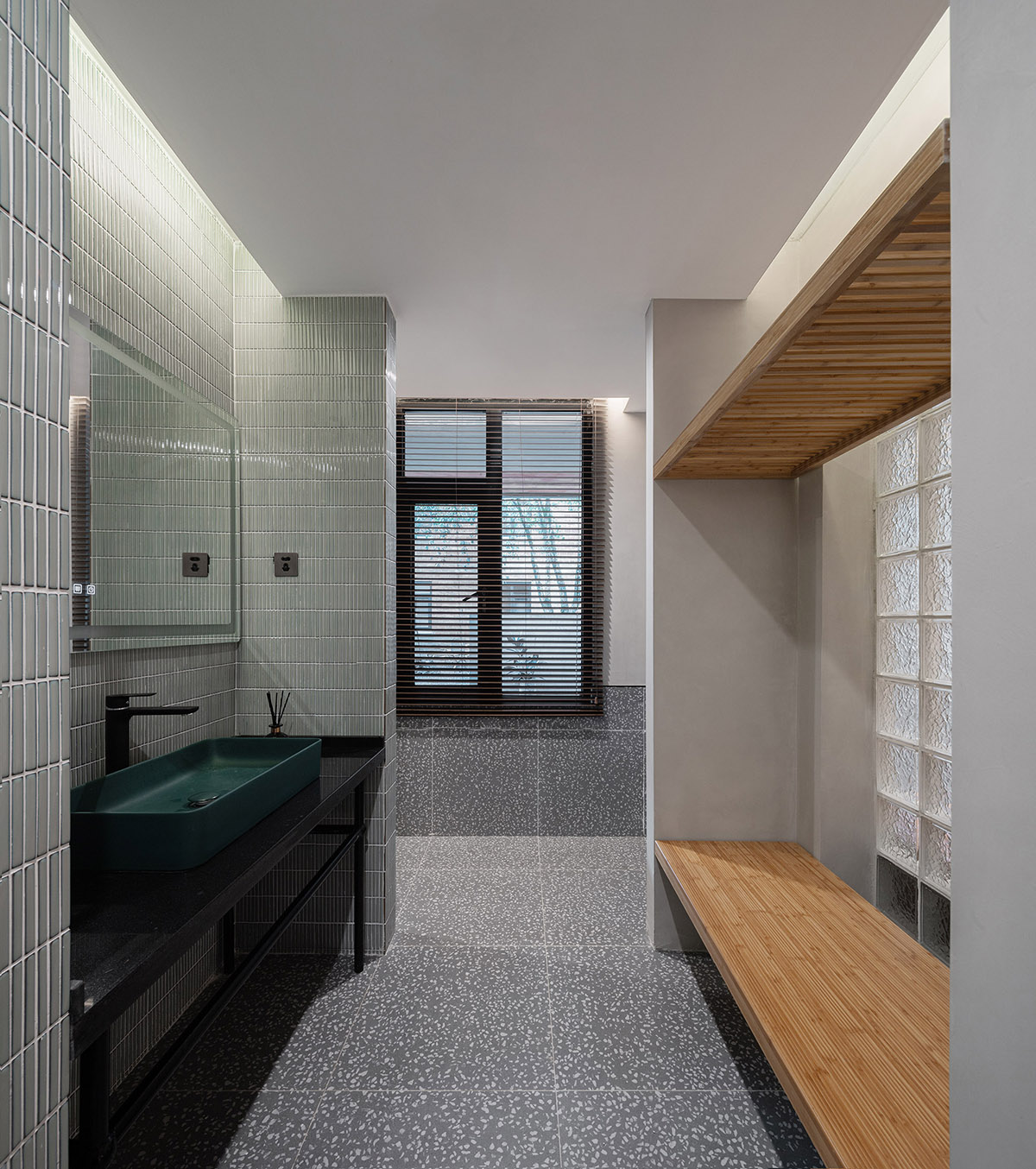
Guestroom bathroom
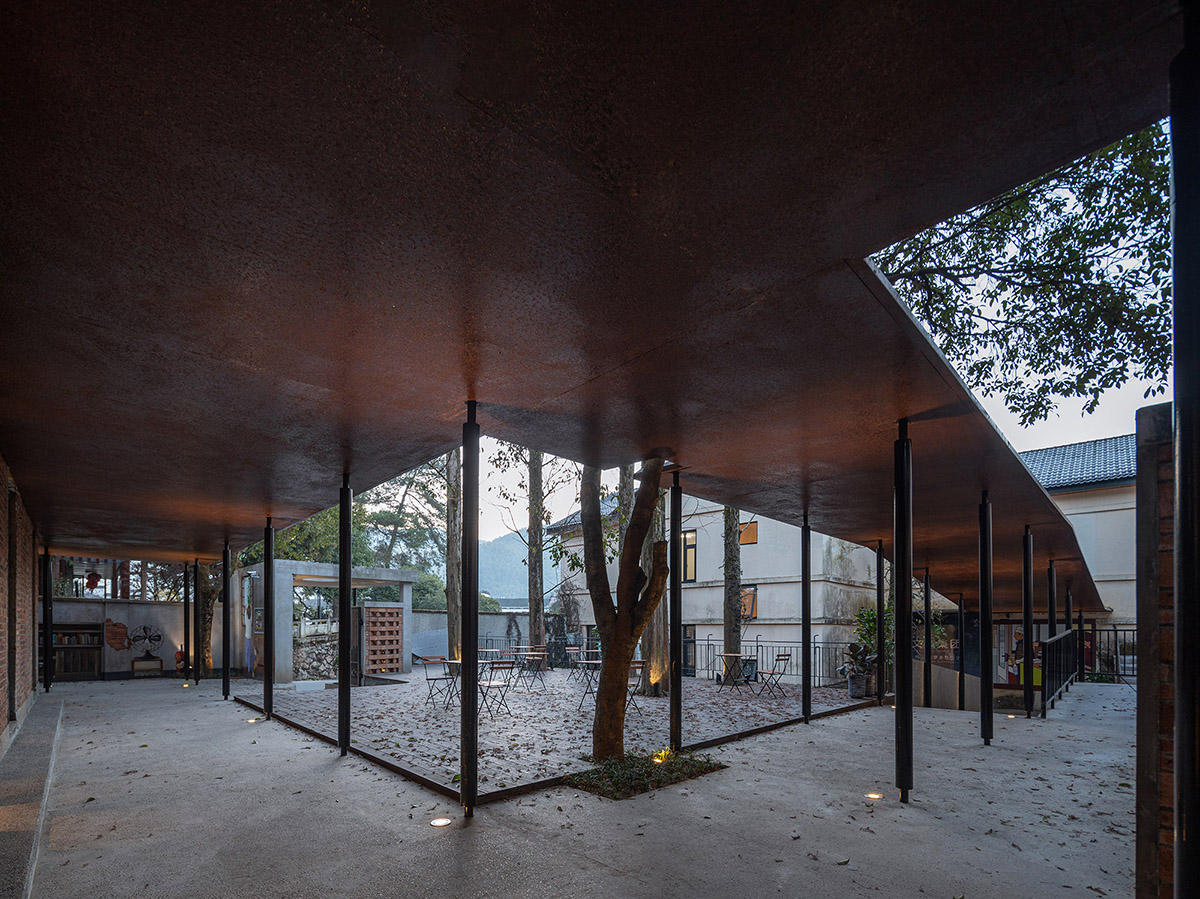
No.1 courtyard and veranda
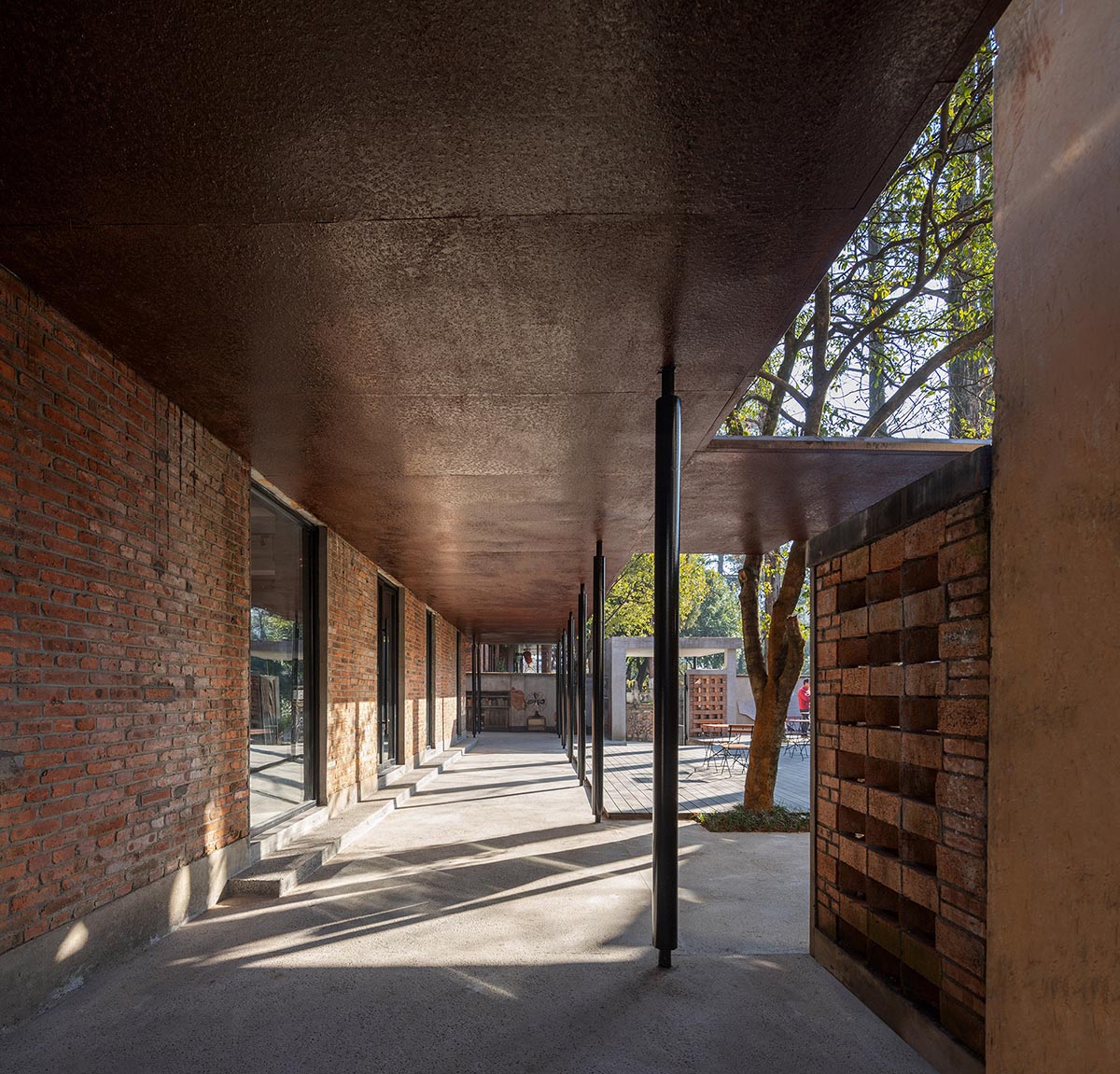
No.1 courtyard and veranda
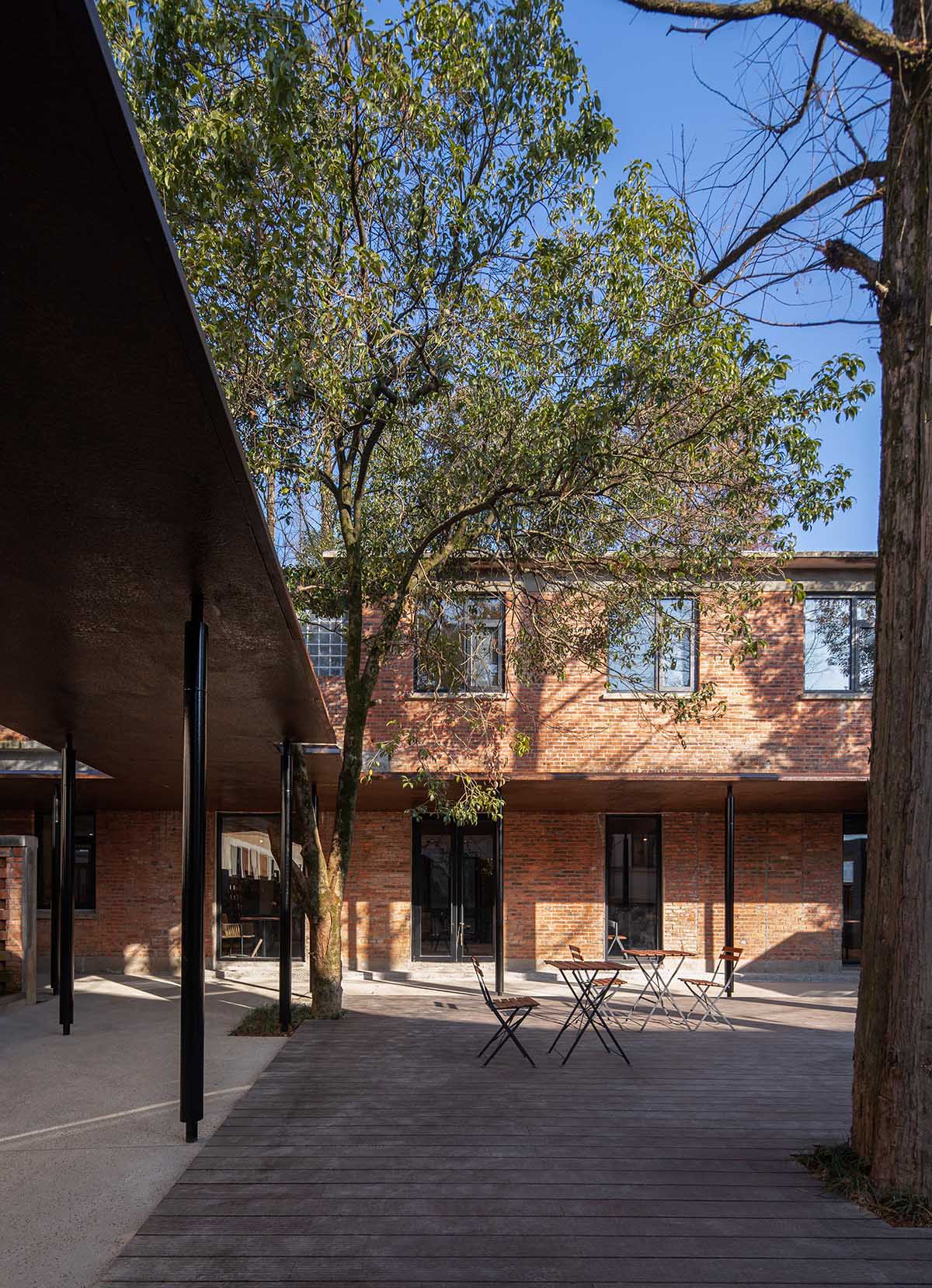
No.1 courtyard and veranda
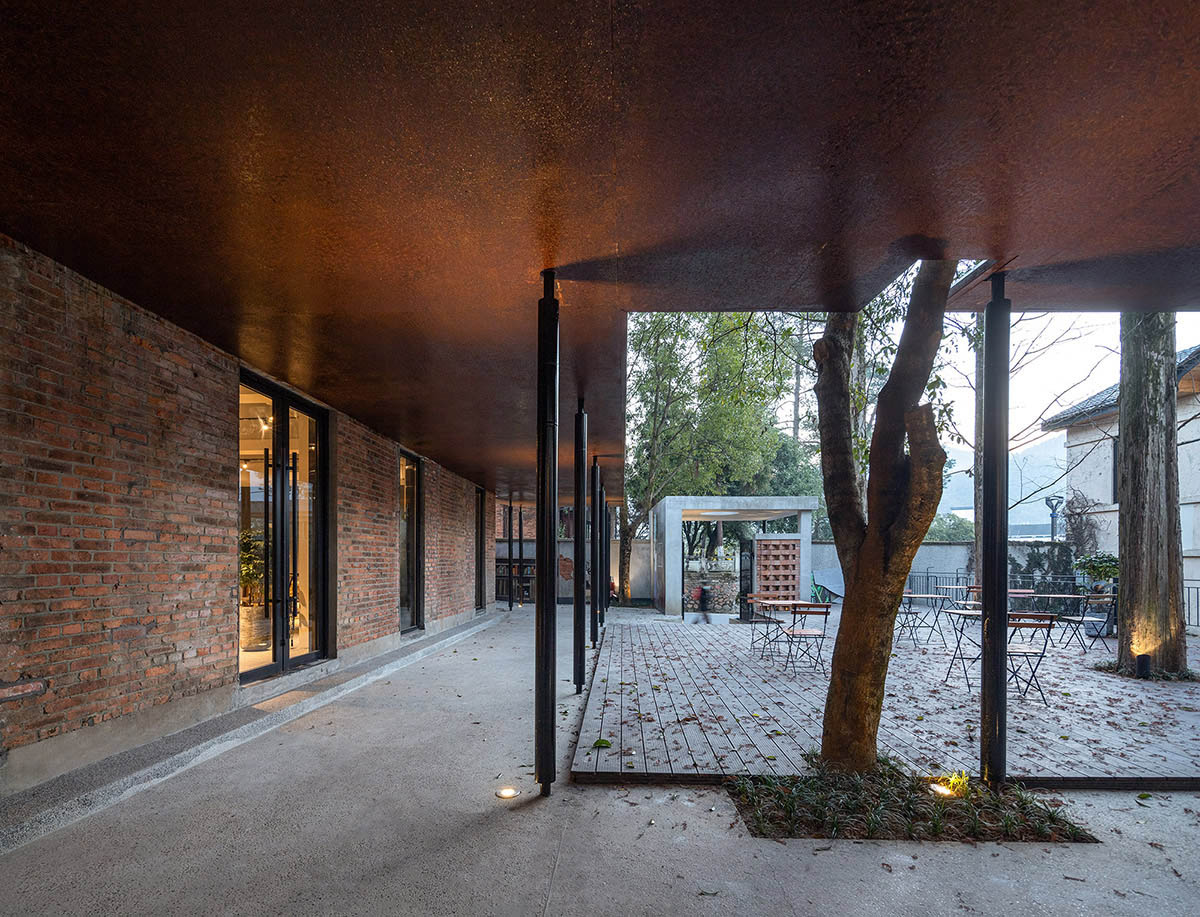
No.1 courtyard and veranda
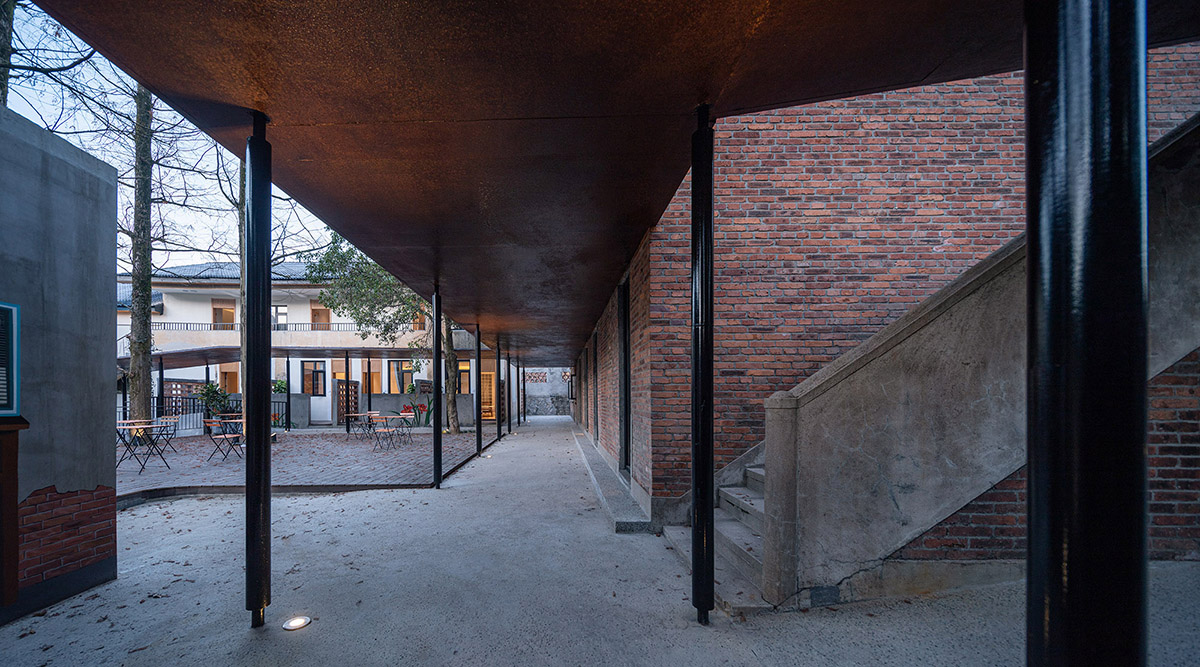
No.1 courtyard and veranda
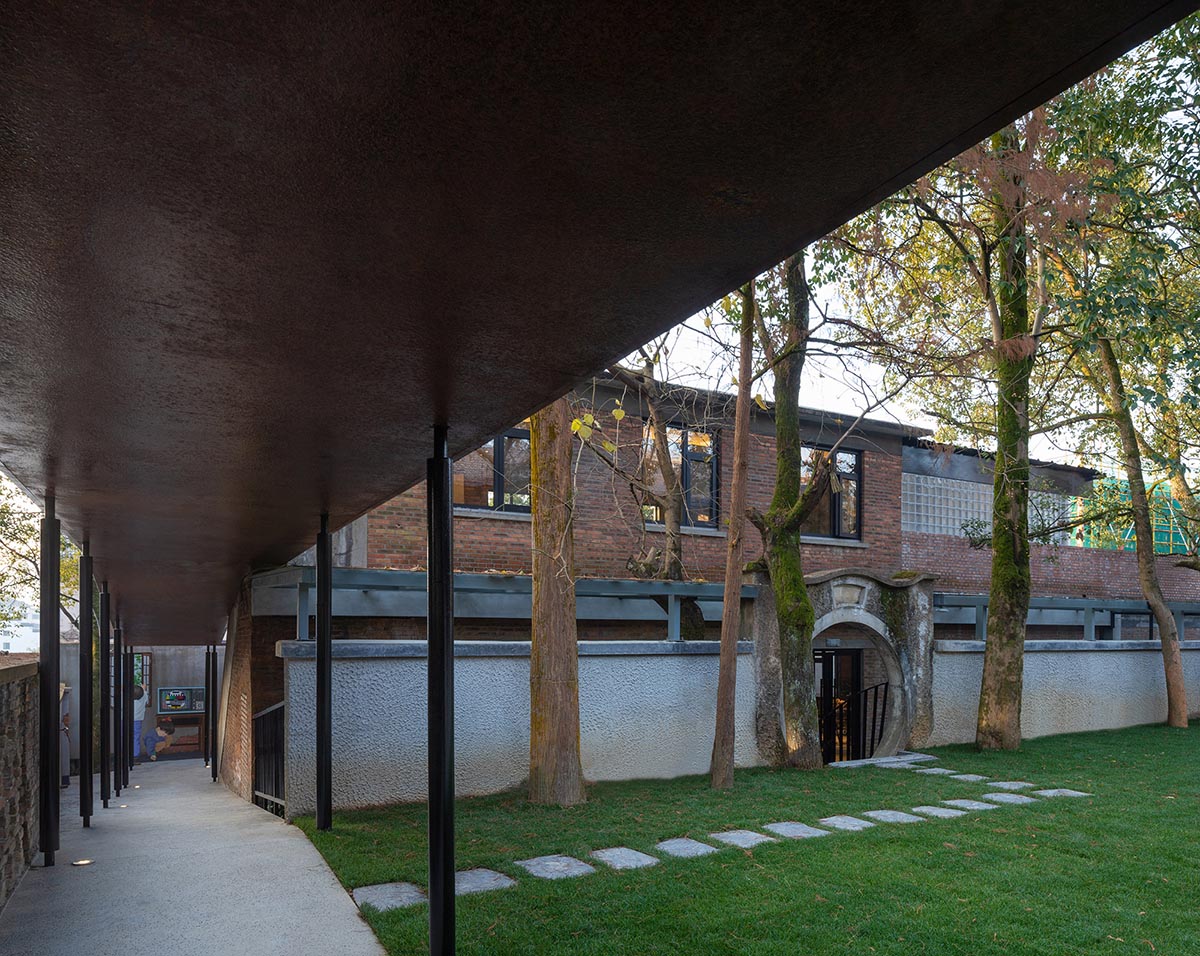
No.2 courtyard and veranda
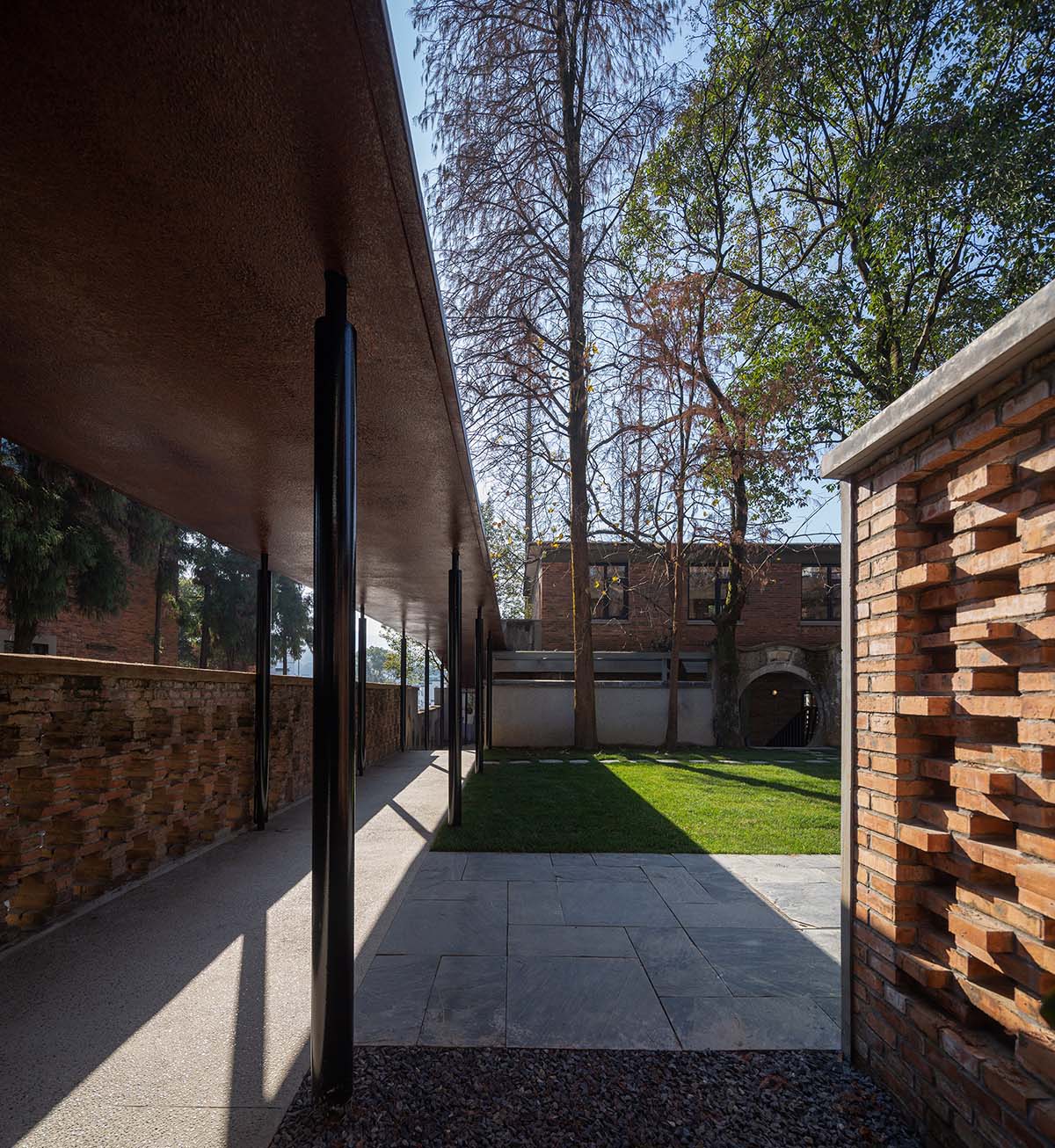
No.2 courtyard and veranda
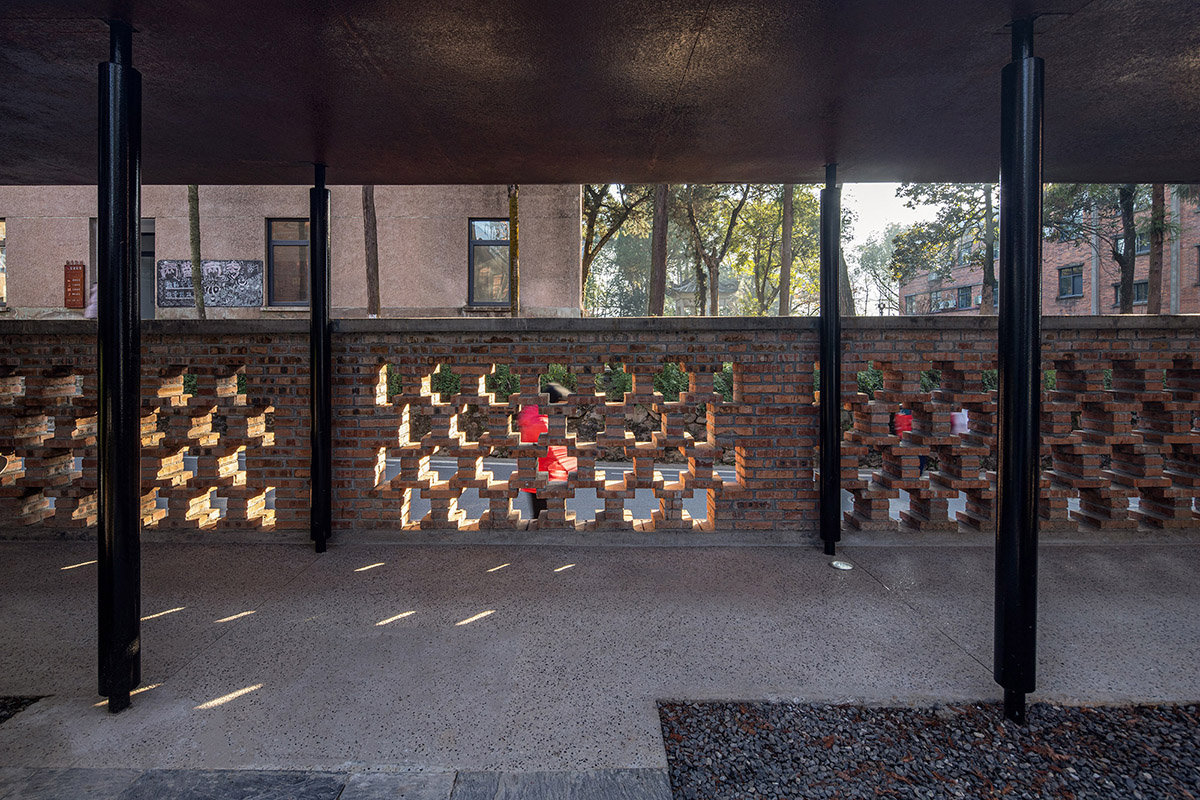
Brick fence and pergola after renovation
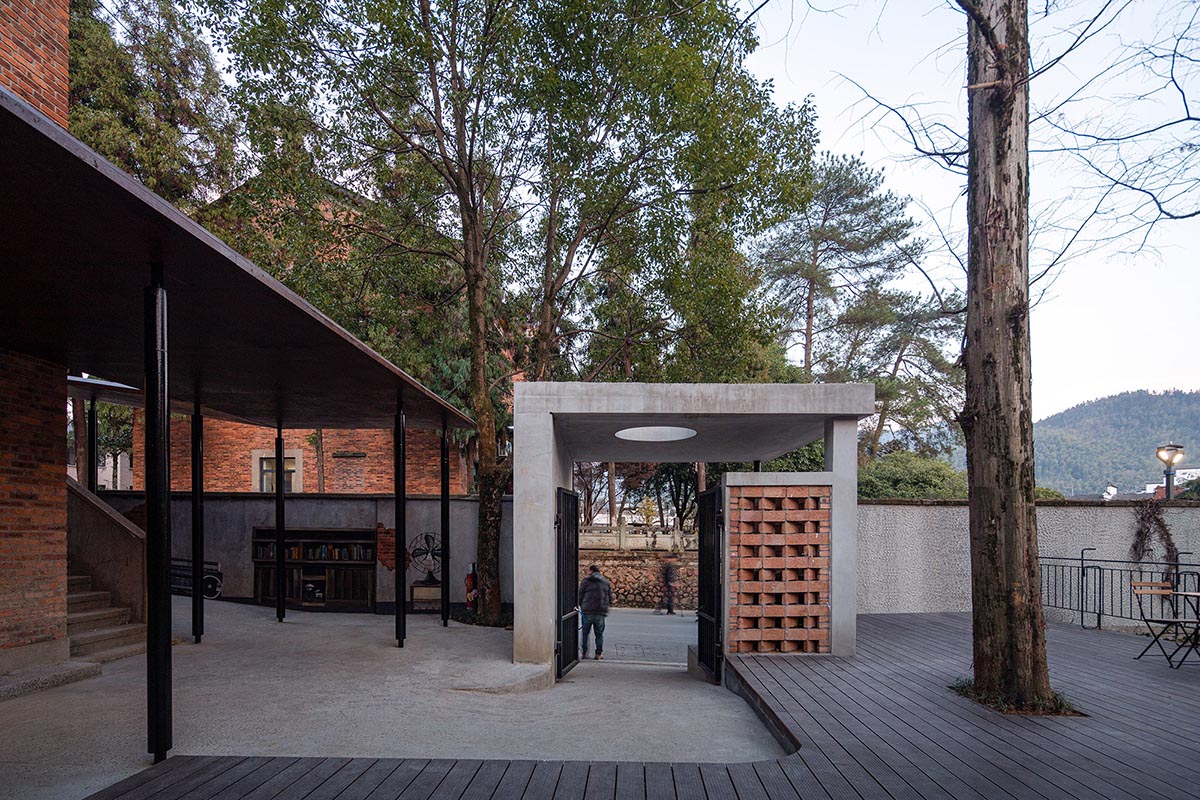
No.1 courtyard and dawn redwoods
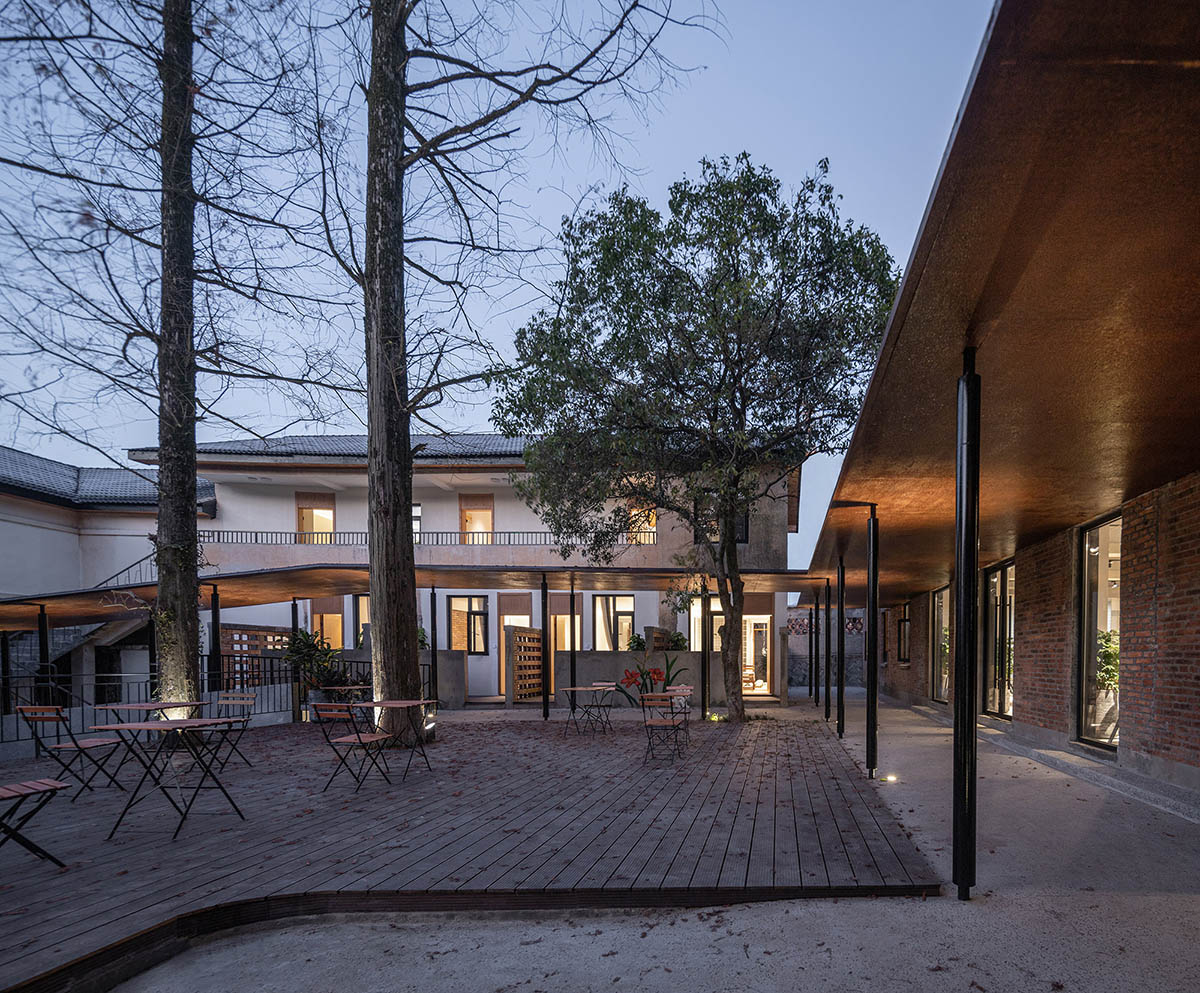
No.1 courtyard and dawn redwoods
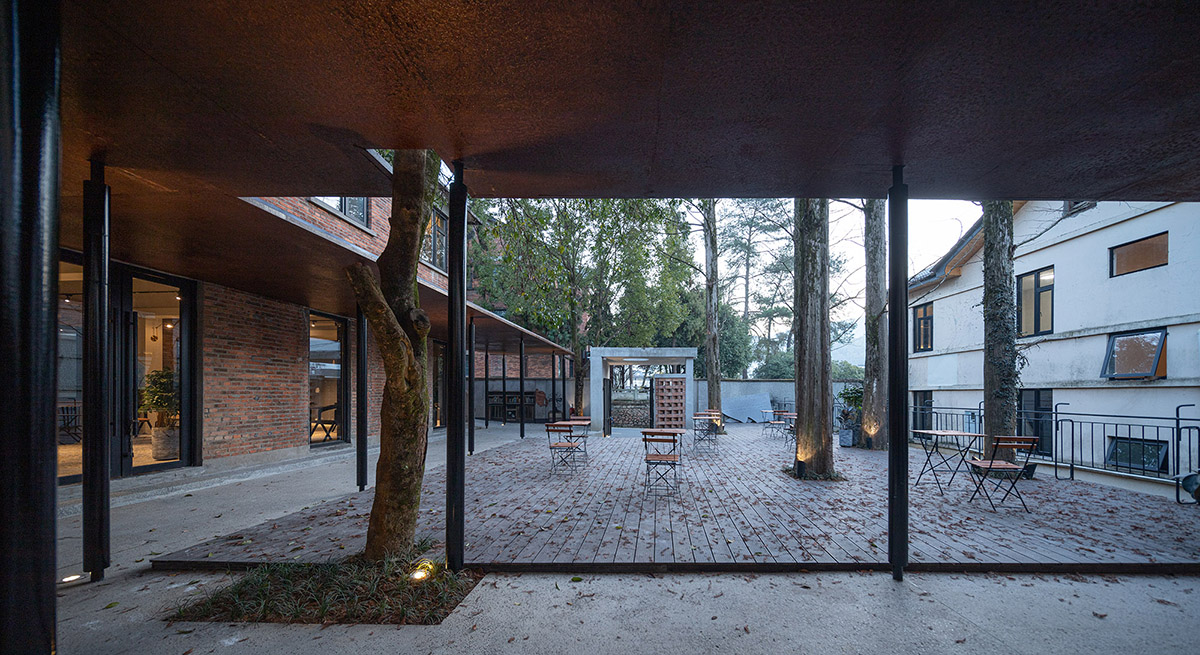
No.1 courtyard & public leisure area
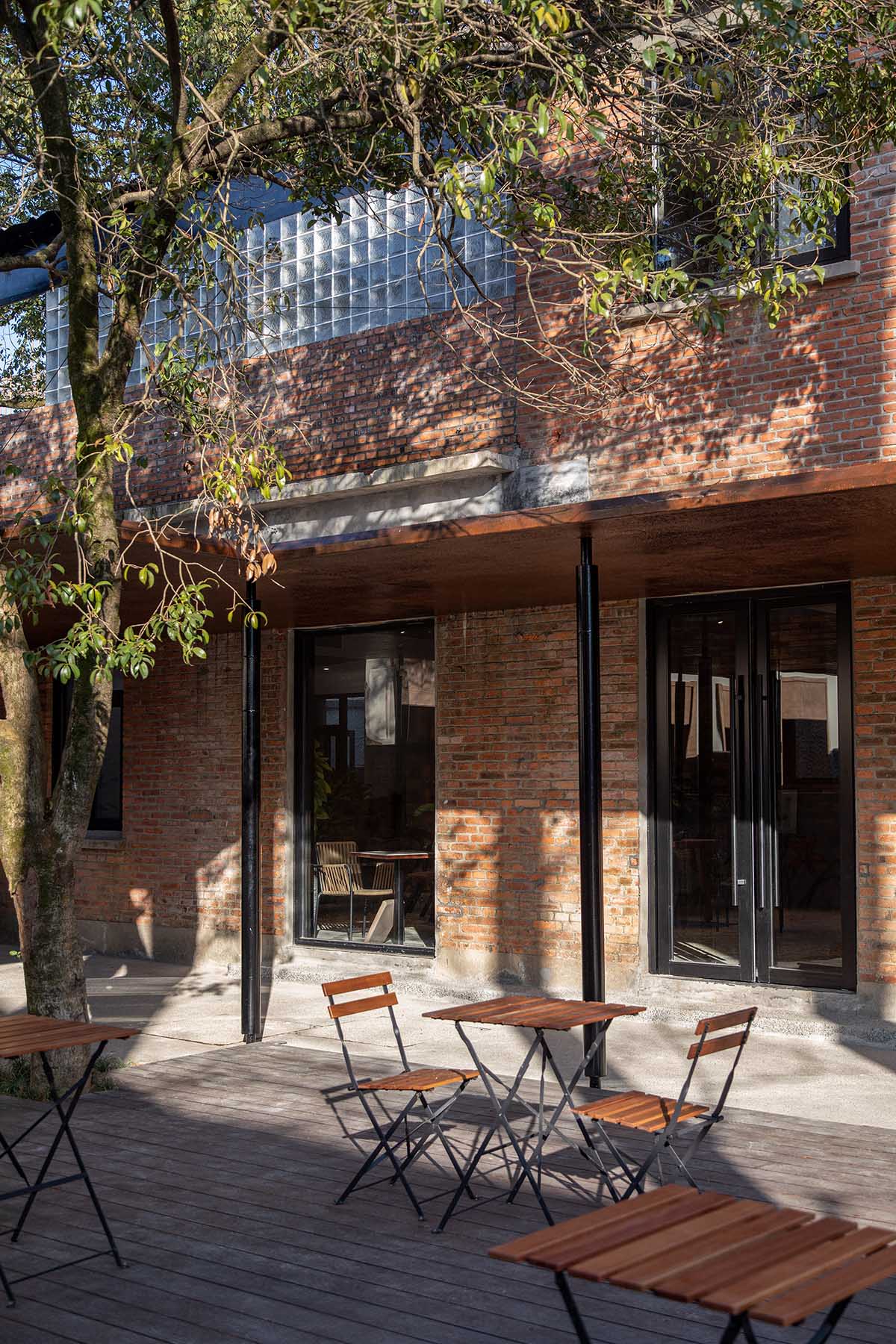
No.1 courtyard & public leisure area
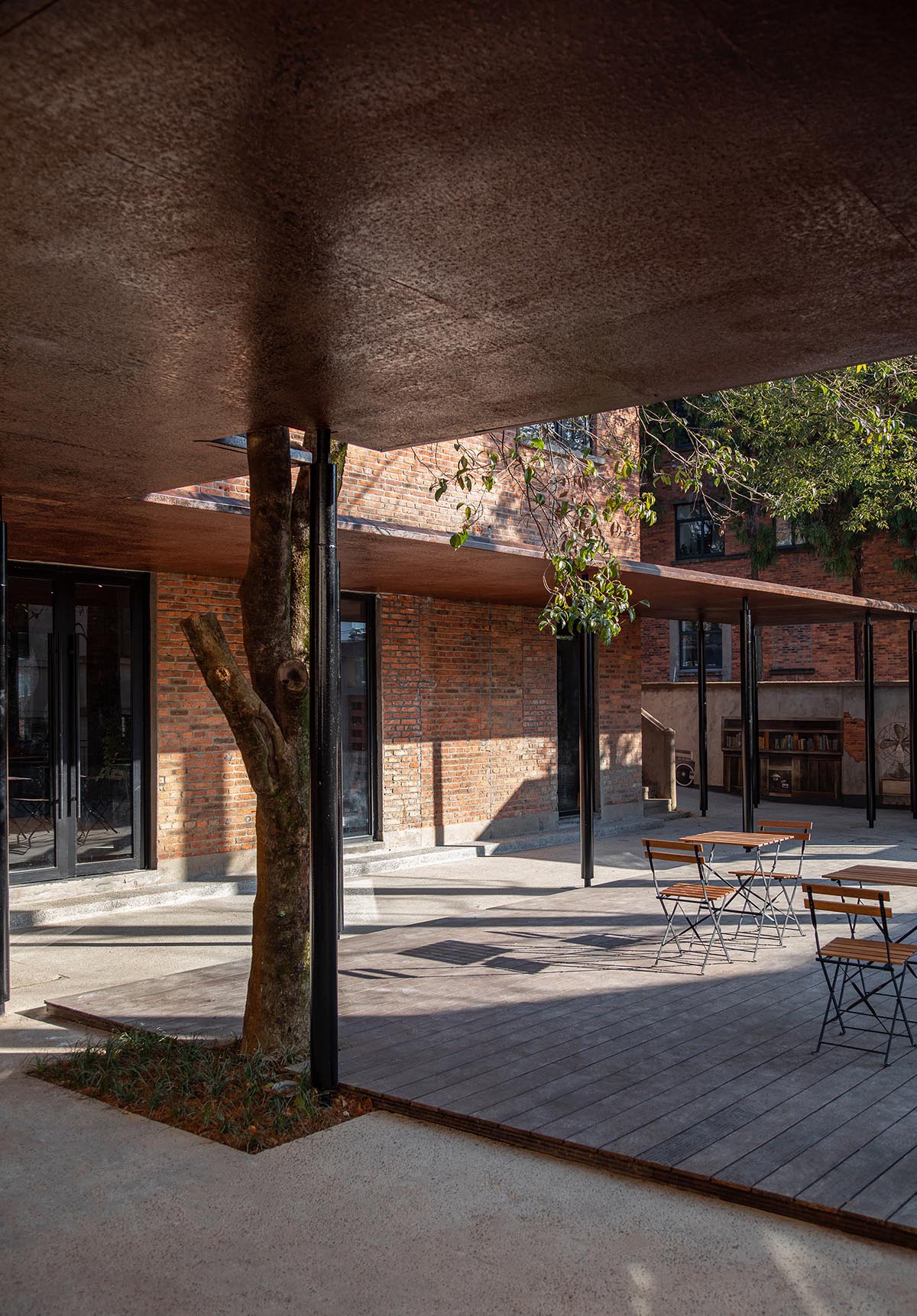
No.1 courtyard & public leisure area
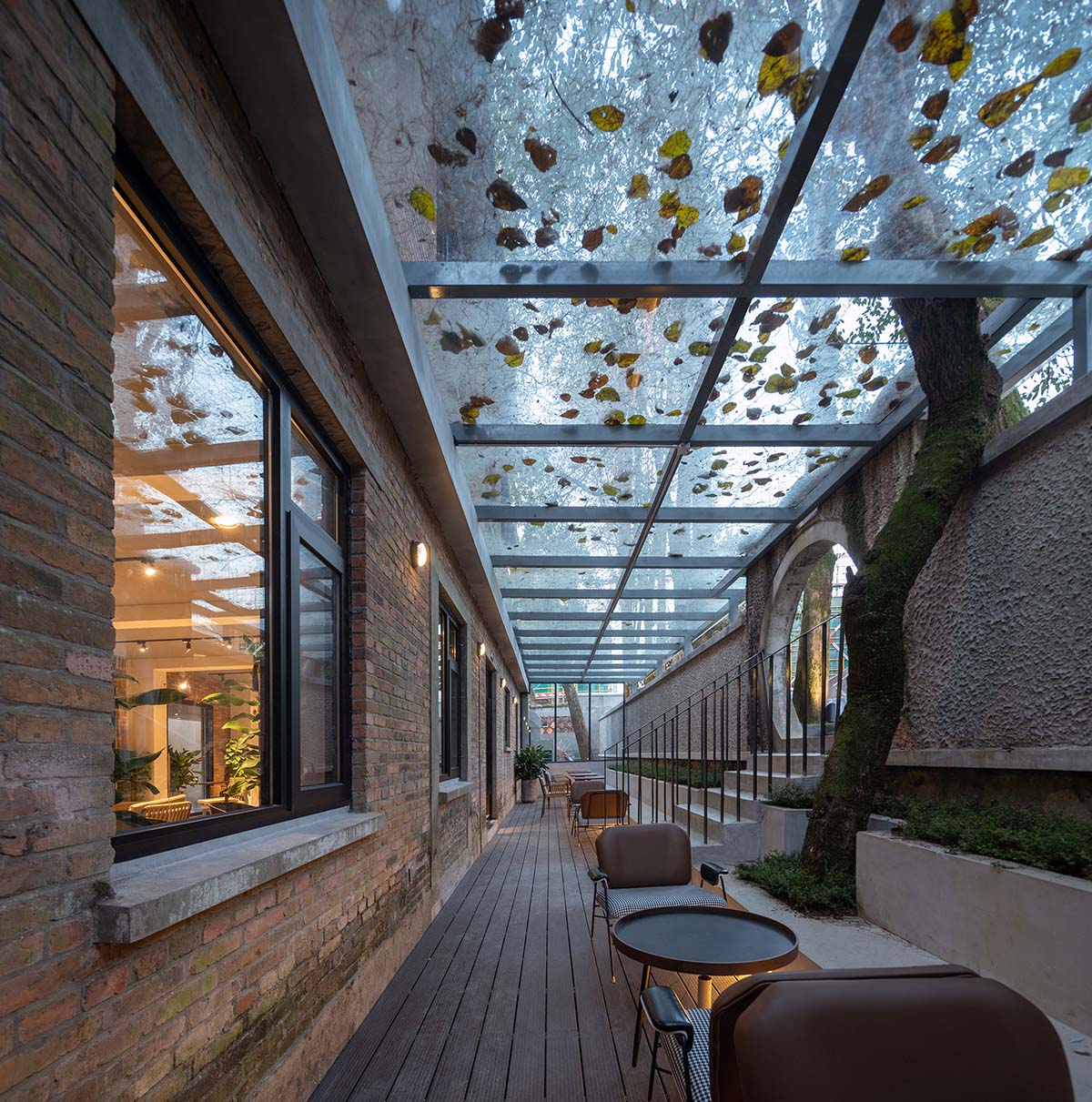
Outdoor dining area at the sunken courtyard
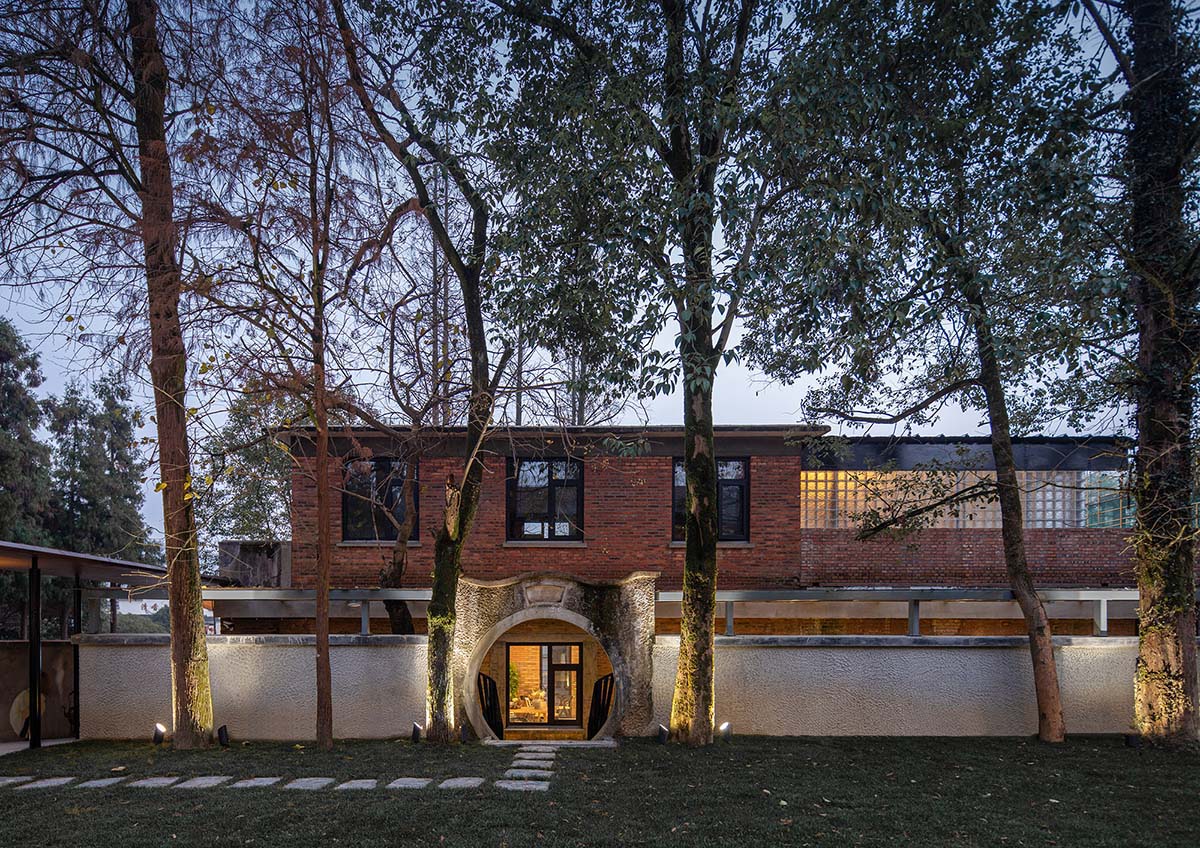
Retained old gate of No.2 courtyard
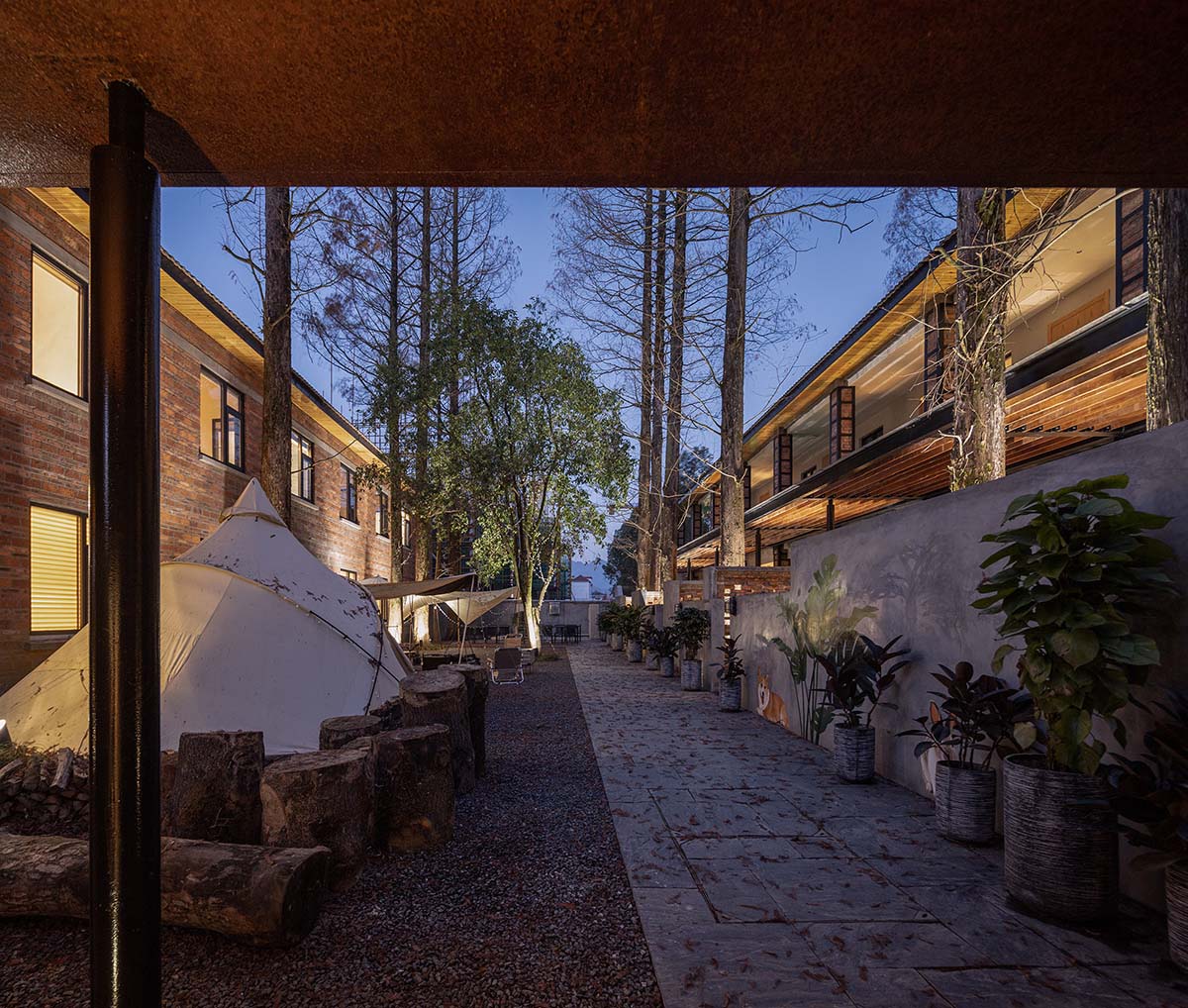
No.3 courtyard & outdoor activity area
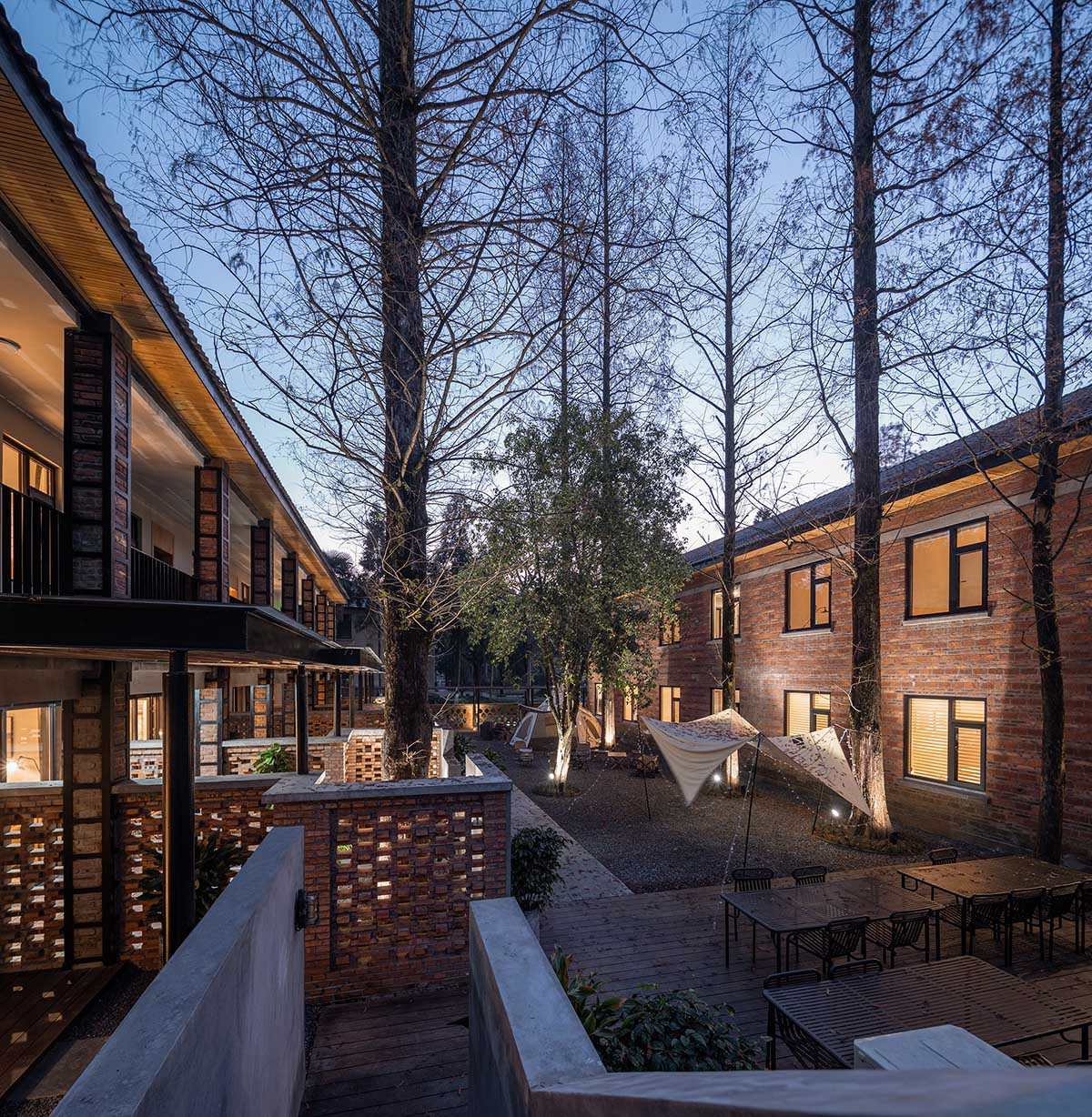
No.3 courtyard & outdoor activity area
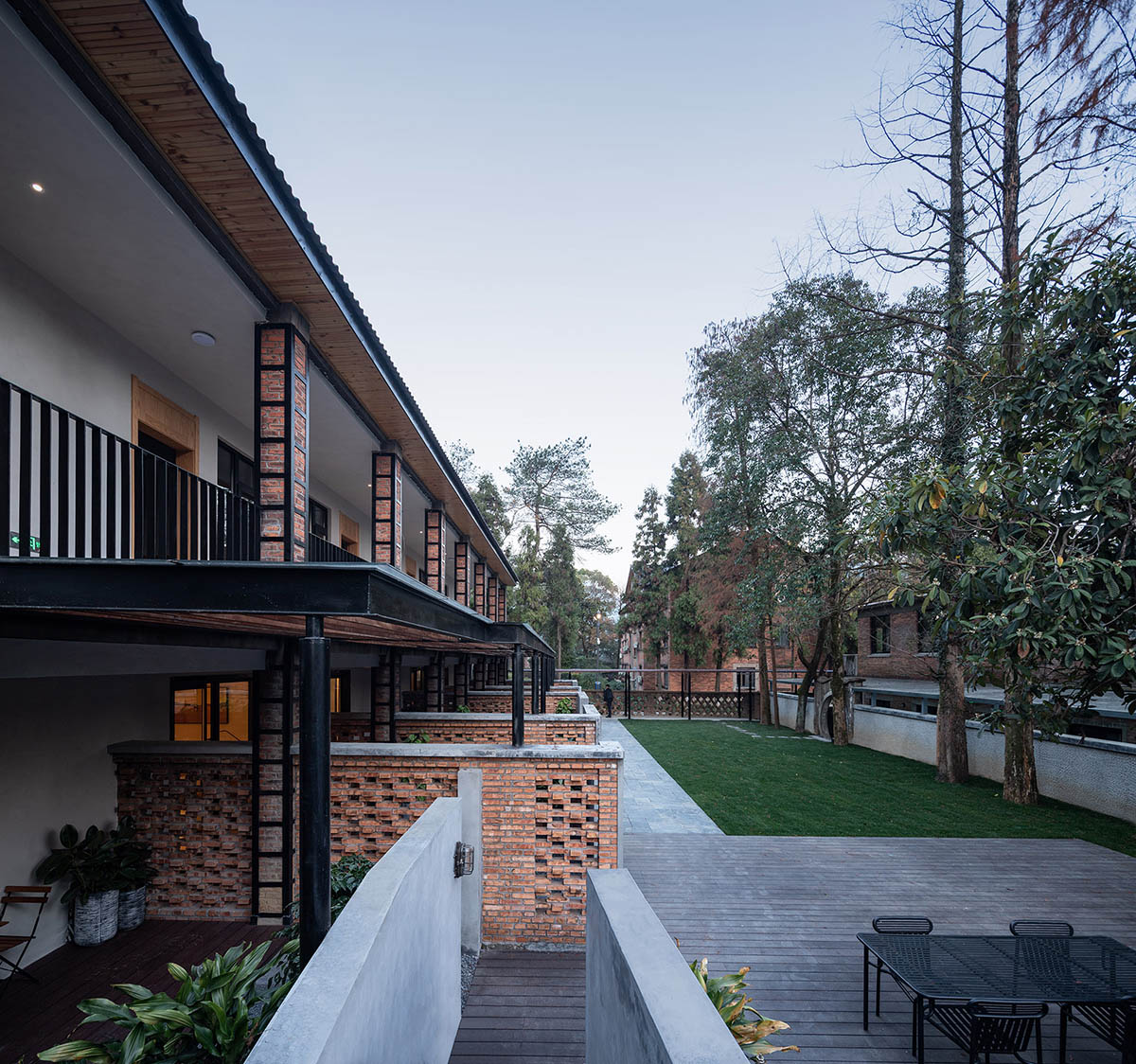
Large and small courtyards
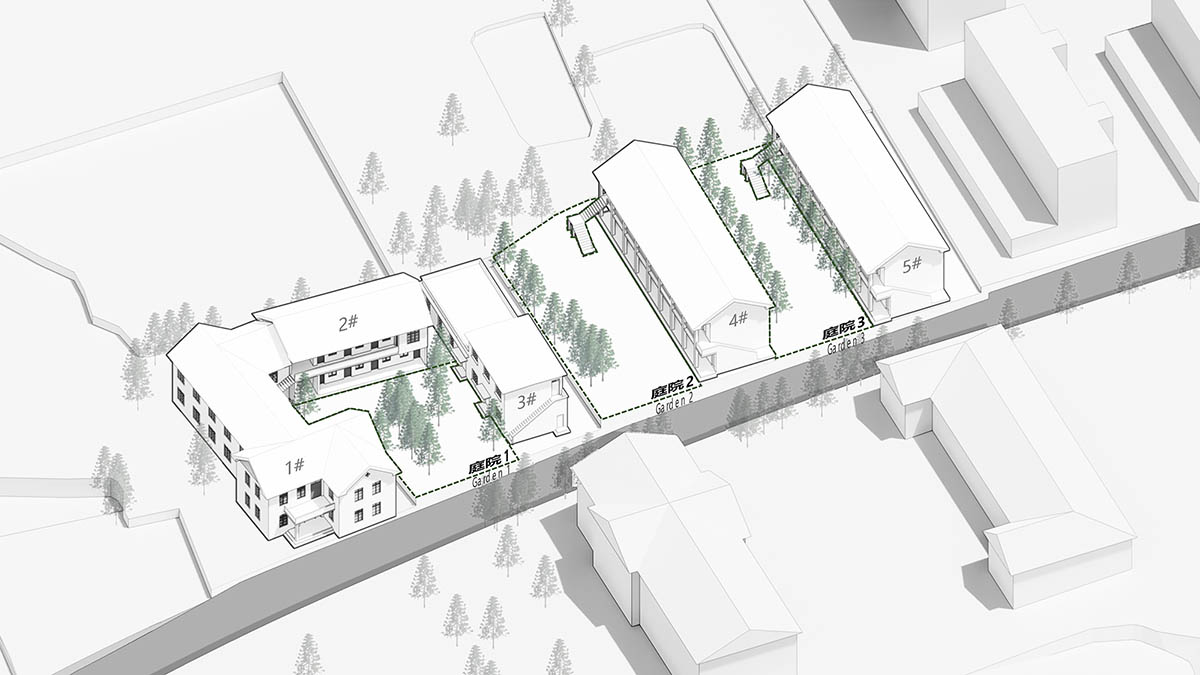
Site diagram
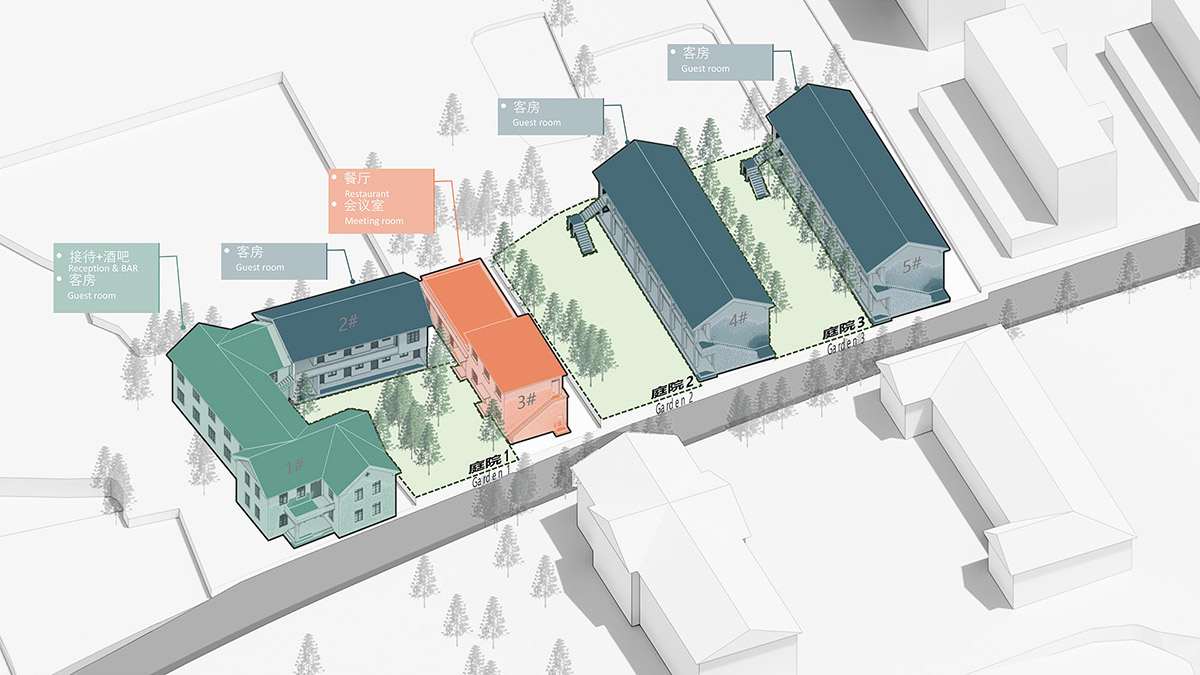
Functional layout
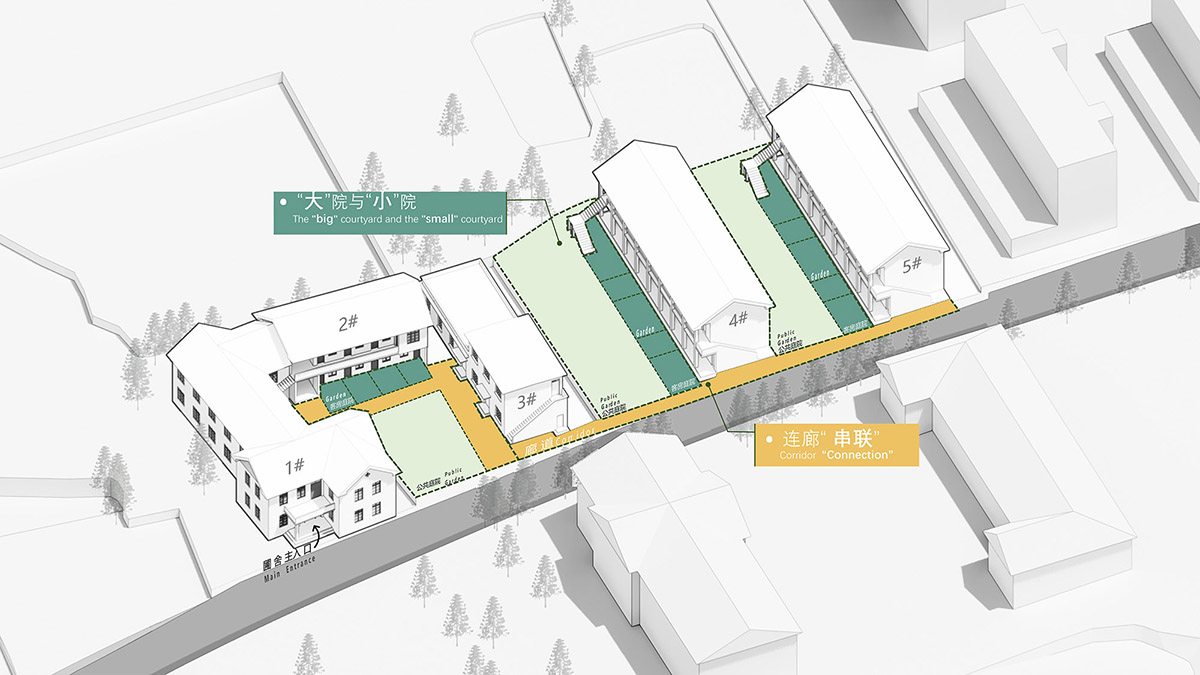
Transformation strategy diagram
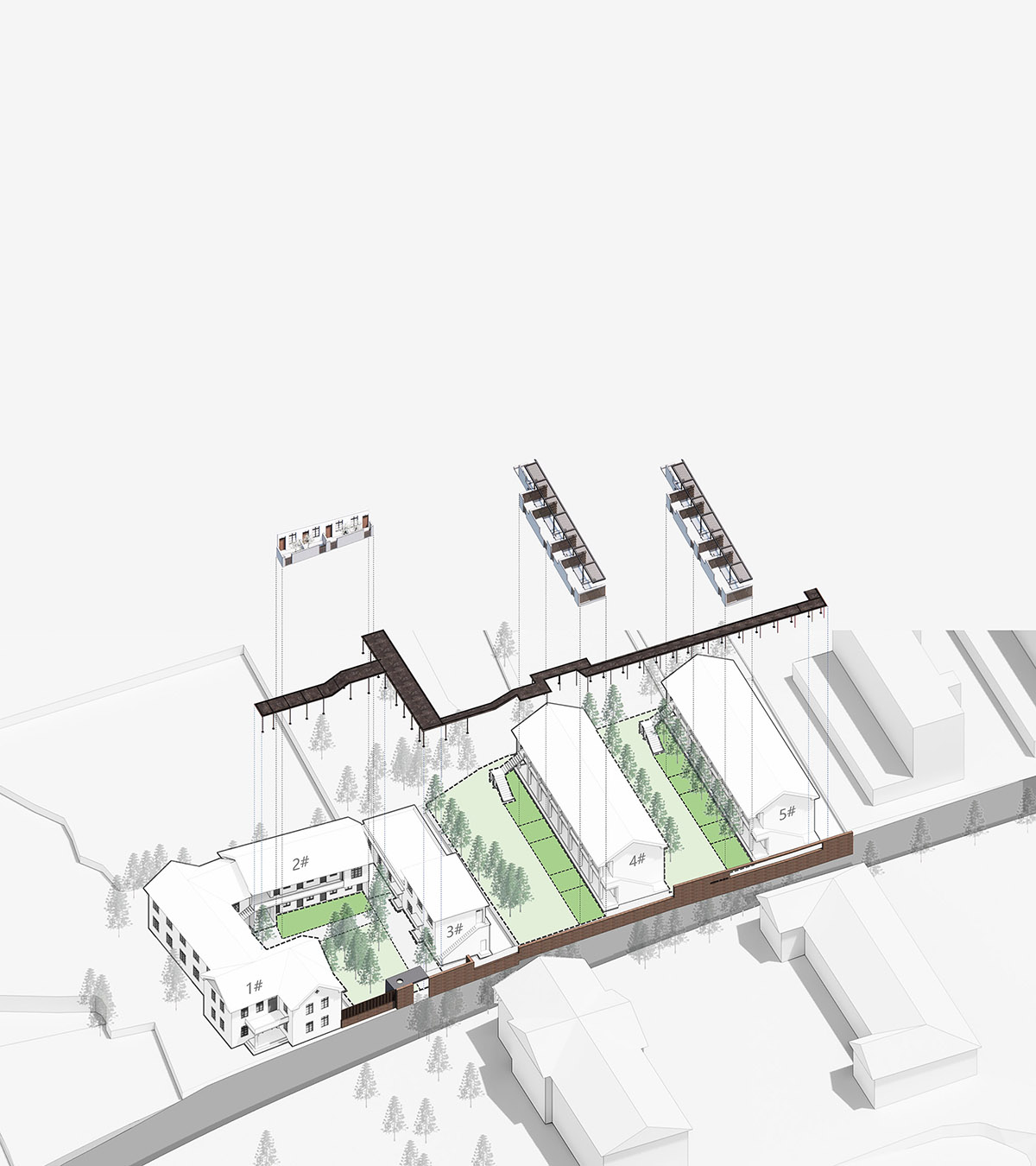
Exploded diagram
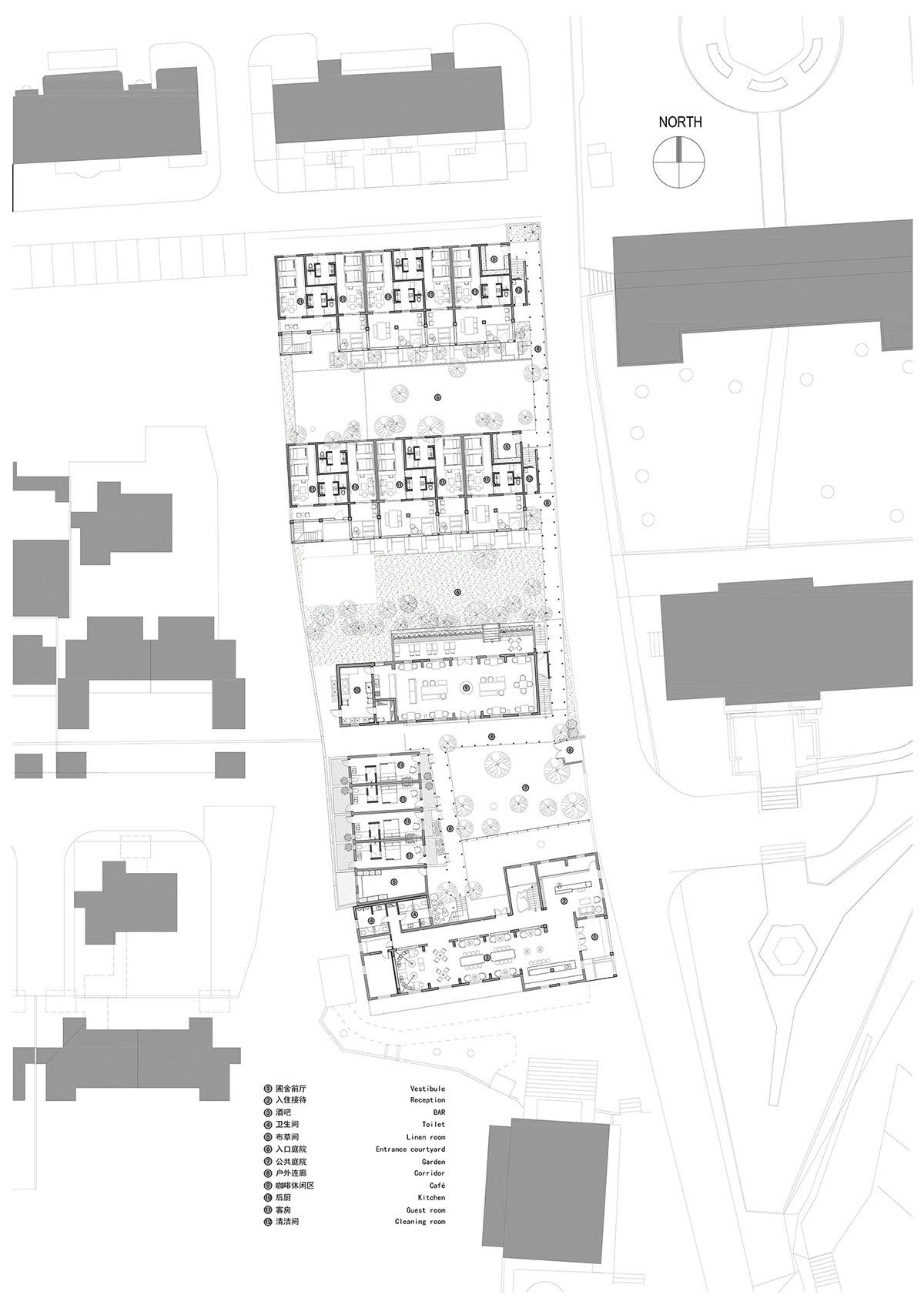
First floor plan
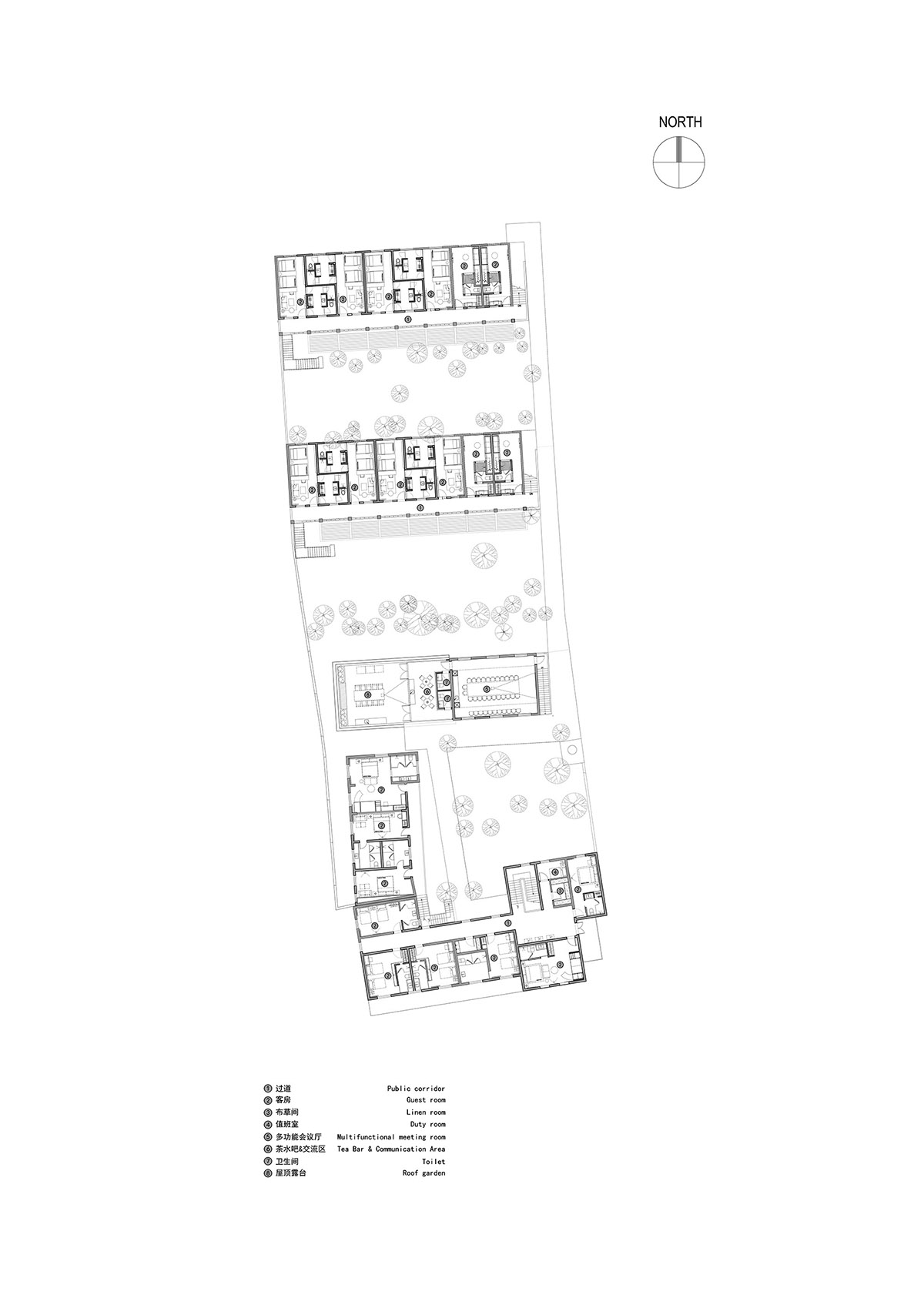
Second floor plan
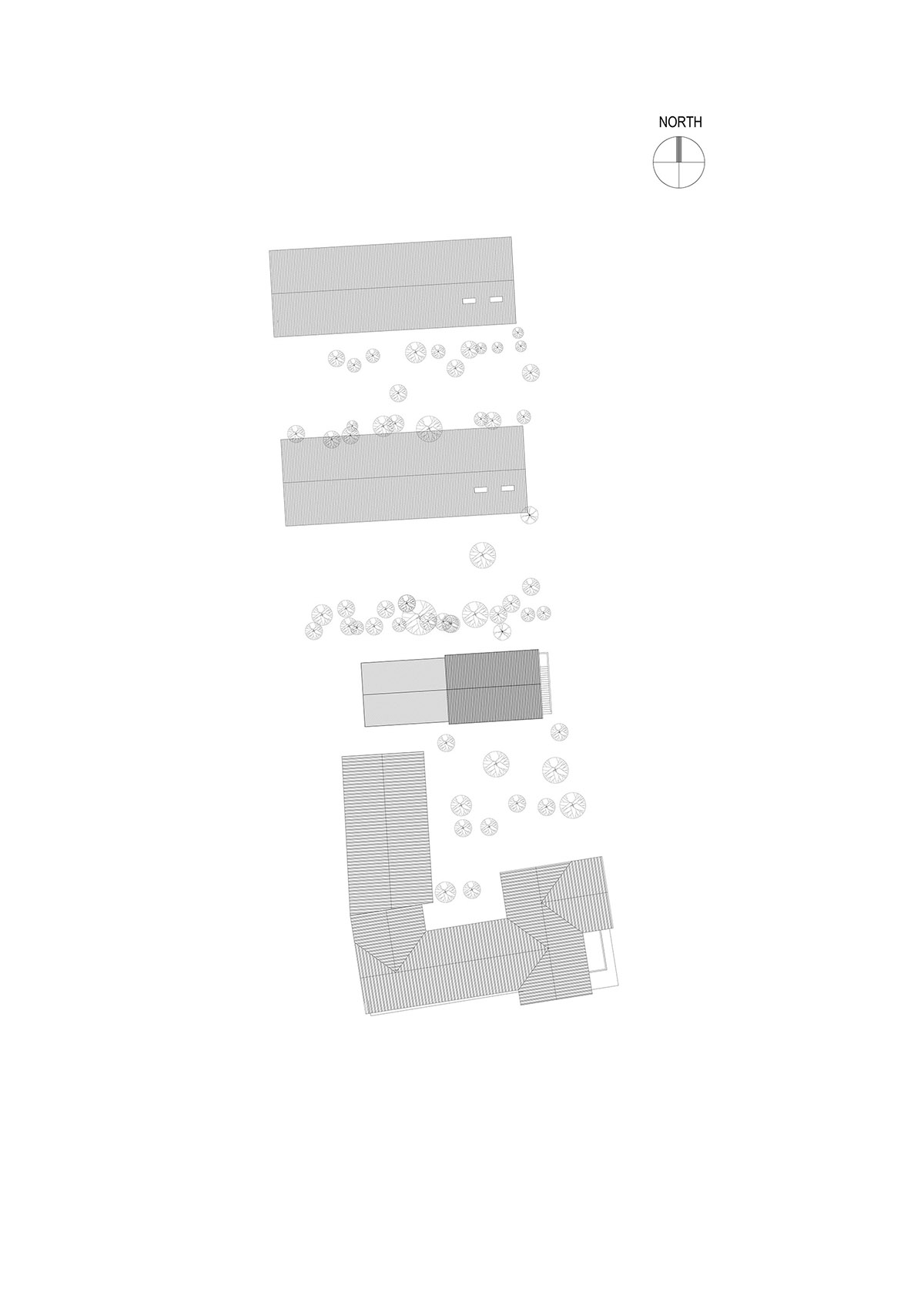
Roof plan
Project facts
Project name: Pushe - Xikou Homestay
Location: Xikou Town, Longyou County, Quzhou City, Zhejiang Province
Development organization: People's Government of Xikou Town, Longyou County
Commissioner: Xband
Design firm: y.ad studio
Chief architect: Yan Yang
Designer: Wu Kejia
Architectural design collaboration: Shanghai Times Architecture Design Co., Ltd.
Construction drawings: Hangzhou Zhongya Architectural Design Co., Ltd.
Design & construction management: Zhu Zhen, Gao Chengkai, Jia Yidong
Project area: 2,336 square meters
Main materials: red brick, glass brick, weathering steel, aluminum panel, paint, laminated bamboo panel
Design phase: March 2020 – June 2020
Construction phase: March 2021 - December 2021
Top image: Facades after renovation. Image © SCHRAN.
All images © SCHRAN.
All drawings © y.ad studio.
> via y.ad studio
